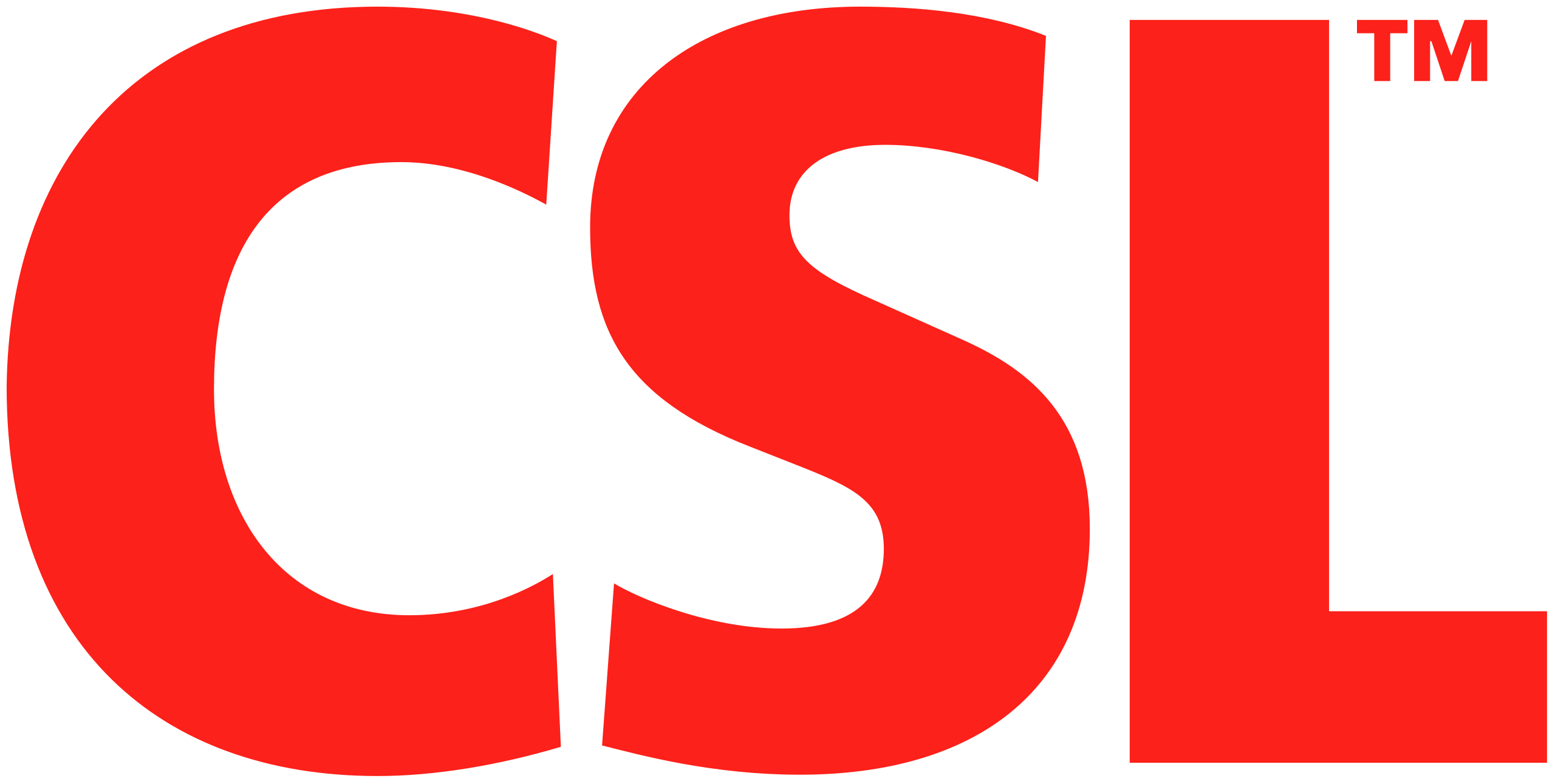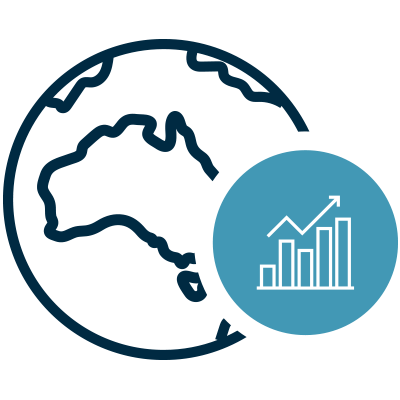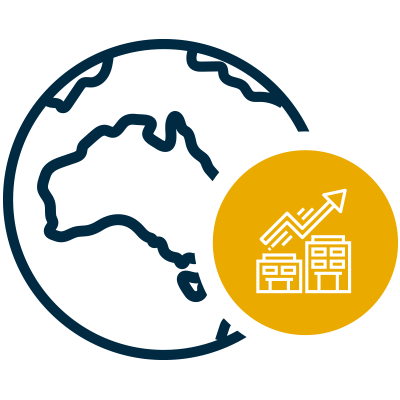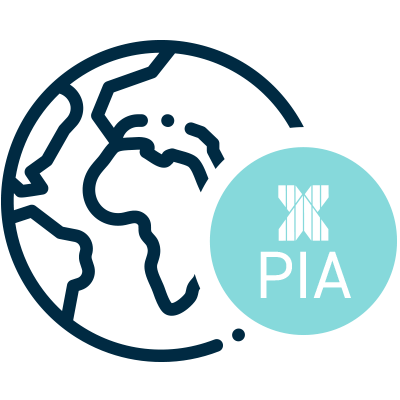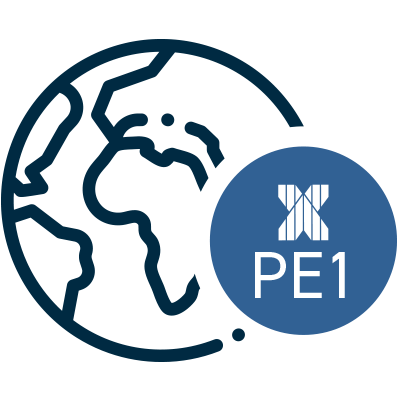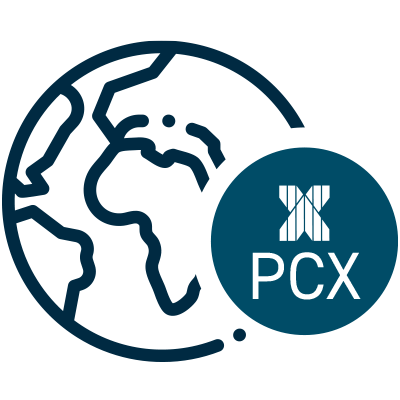https://data.pengana.com/wp-json/pen/performance?fund_code=PENSIF&date=31/01/2024&aggregation_code=Class%20A
Array
(
[0] => Array
(
[date] => 31/01/2024
[table] =>
[piechart] => Array
(
[0] => Array
(
[0] => Sector Breakdown
[1] => ["Consumer Discretionary", 0.03181535],["Health Care", 0.308917278],["Industrials", 0.297715915],["Information Technology", 0.234955403],["Materials", 0.117717032],["Cash", 0.008879022],
)
[1] => Array
(
[0] => Capitalisation Breakdown
[1] => ["2-10bn", 0.257959982],["10-20bn", 0.113911797],[">20bn", 0.619249199],["Cash", 0.008879022],
)
[2] => Array
(
[0] => Region Breakdown
[1] => ["North America", 0.455589376],["Europe ex-UK", 0.301606278],["Japan", 0.065544284],["UK", 0.105114322],["Asia Pacific", 0.063266719],["Cash", 0.008879022],
)
[3] => Array
(
[0] => Custom Sector Breakdown
[1] => ["Health", 0.273373158],["Resource Efficiency", 0.268860357],["Sustainable Transport", 0.069739775],["Environmental Services", 0.118589892],["Water Management", 0.115121281],["Safety", 0.07493362],["Cleaner Energy", 0.033775947],["Wellbeing", 0.018332514],["Education", 0.018394433],["Cash", 0.008879022],
)
)
[topholdings] => AUSUSD/Agilent Technologies Inc/United States/Health Care,AUIUSD/Autodesk Inc/United States/Information Technology,CSL/CSL Ltd/Australia/Health Care,DHRUSD/Danaher Corp/United States/Health Care,ECLUSD/Ecolab Inc/United States/Materials,6490995/Keyence Corp/Japan/Information Technology,BNZHB81/Linde PLC/United States/Materials,THEUSD/Thermo Fisher Scientific Inc/United States/Health Care,BK9ZQ96/Trane Technologies PLC/United States/Industrials,B3P2CN8/Xylem Inc/NY/United States/Industrials,
[topholdingsimg] => https://data.pengana.com/wp-content/uploads/Stock-Icons/download-5-e1607921377179.png,https://data.pengana.com/wp-content/uploads/Autodesk-logo-e1644184012863.png,https://data.pengana.com/wp-content/uploads/2560px-CSL_Limited_logo.svg.png,https://data.pengana.com/wp-content/uploads/download-10.png,https://data.pengana.com/wp-content/uploads/Stock-Icons/Ecolab_Logo.png,https://data.pengana.com/wp-content/uploads/Stock-Icons/keyence-vector-logo-e1607921289158.png,https://data.pengana.com/wp-content/uploads/Linde_plc_logo_combi_cyan_1_3_2_sRGB.png,https://data.pengana.com/wp-content/uploads/Stock-Icons/TMO_original.png,https://data.pengana.com/wp-content/uploads/tt_logo_color_rgb.jpg,https://data.pengana.com/wp-content/uploads/Xylem_Logo.svg.png,
[topholdingsintro] => Array
(
[0] => Agilent Technologies is a specialist in the development and manufacture of bio-analytics for the life sciences and chemical analysis industries. The companys mission is to advance quality of life. Within healthcare, its analytical instruments are used in the development and testing of healthcare products. Agilent also has a chemical analysis business which makes equipment for monitoring levels of pollutants in the ambient environment and or measuring contaminants in food and the human body.
[1] => Autodesk is a global leader in 3D design and engineering software and services. Its products are used by architects, engineers and designers to design, develop and manufacture and operate a vast range of products, buildings and services. Autodesk tools are a critical component in the design and operation of more resource efficient products and buildings. They can deliver significant resource savings, due to their impressive capabilities and critical position in design process. The product brands include Autodesk 360 cloud services, AutoCAD civil 3D and LT, 3Ds Max, Maya, and Revit.
[2] => CSL develops medical products for serious and life-threatening diseases. Its core business is as a provider of human blood plasma-derived products to treat bleeding disorders, rare and serious infections and autoimmune diseases. CSL also manufactures vaccines and related products, including for flu and cervical cancer, as well as other products that speed up recovery times for patients that have undergone heart surgery, organ transplants and burns. The company provides these solutions across North America, Europe, Asia, Australia as well as other parts of the world.
[3] => Danaher is a diversified business that designs, manufactures and sells laboratory equipment and consumables to clinical and medical laboratories including microscopes, analytical software and imaging and molecular devices. These tools are used in the development of new drugs and for diagnosing critically ill patients. In addition, the company also designs, manufactures and sells equipment to test and treat water (incl. UV water treatment systems). Overall, Danahers products offer improved efficiency and reliability.
[4] => Ecolab sells cleaning products and services to restaurants, hotels, hospitals, food and beverage producers and other businesses. The company has a particular focus on energy and water efficiency. Ecolab has developed a range of products and services that help to reduce, and in some cases even eliminate, the use of water in a wide range of industrial applications. In turn, this helps to lower costs through a reduction of energy and water impacts.
[5] => The companys products include machine visions systems including sensors and measuring instruments that are primarily used in the automation of factories. These components help customers achieve higher levels of efficiency, energy-savings, improved material utilisation and reduced wastage and quality management.
[6] => Linde Plc produces and distributes industrial gases. The company operates globally supplying oxygen, hydrogen and other gases to a very wide range of downstream markets including into manufacturing industries, petrochemical and electronics industries. The gases are used in a variety of applications including in making manufacturing processes more efficient and in reducing harmful emissions. The company is establishing a strong presence in the green hydrogen market and also sells oxygen and other gases into the healthcare sector.
[7] => Thermo Fisher Scientific is one of the largest suppliers of analytical instrument, equipment, consumables and software for healthcare and environmental research, analysis, discovery and diagnostics. The company offers a very wide range of products and services including the equipment needed to analyse samples as well as the variety of containers and other consumables needed to handle them
[8] => Trane is a world leader in air conditioning systems and services. The company serves engineers, contractors and business owners across an array of markets including education, healthcare, government and manufacturing. It also provides climate-controlled transport solutions to the food and medical industries. It also has an offering in the heat pump space which brings a 300% efficiency gain compared with the system it would replace.
[9] => Xylem manufactures a wide range of products and provides services to the water industry. The companys water infrastructure business provides a range of pumps, filtration and testing and treatment equipment to water utilities. The company also supplies commercial, residential markets with water and wastewater systems, and provides measurement and control solutions. Xylems strategy is characterised by the application of intelligent technology to improve water efficiency, in products such as smart meters and intelligent monitoring equipment.
[10] =>
)
[pdfchart] => PD94bWwgdmVyc2lvbj0iMS4wIiBlbmNvZGluZz0iVVRGLTgiIHN0YW5kYWxvbmU9Im5vIj8+PHN2ZyB4bWxucz0iaHR0cDovL3d3dy53My5vcmcvMjAwMC9zdmciIGJvcmRlcj0iMCIgZGF0YS1hYy13cmFwcGVyLWlkPSIzMDkiIHdpZHRoPSIzMzAiIGhlaWdodD0iMTY1IiBjbGFzcz0iYW55Y2hhcnQtdWktc3VwcG9ydCIgYWMtaWQ9ImFjX3N0YWdlXzhrIiByb2xlPSJwcmVzZW50YXRpb24iIHN0eWxlPSJkaXNwbGF5OiBibG9jazsiPjxkZWZzPjxjbGlwUGF0aCBjbGlwLXJ1bGU9Im5vbnplcm8iIGlkPSJhY19jbGlwXzh6Ij48cGF0aCBkYXRhLWFjLXdyYXBwZXItaWQ9IjMyOCIgaWQ9ImFjX3JlY3RfOTAiIGZpbGw9Im5vbmUiIHN0cm9rZT0iYmxhY2siIGQ9Ik0gMCAwIEwgMTgzLjEyODkwNjI1IDAgMTgzLjEyODkwNjI1IDE2IDAgMTYgMCAwIFoiLz48L2NsaXBQYXRoPjxjbGlwUGF0aCBjbGlwLXJ1bGU9Im5vbnplcm8iIGlkPSJhY19jbGlwXzk4Ij48cGF0aCBkYXRhLWFjLXdyYXBwZXItaWQ9IjMzNSIgaWQ9ImFjX3JlY3RfOTkiIGZpbGw9Im5vbmUiIHN0cm9rZT0iYmxhY2siIGQ9Ik0gNDggMjYgTCAzMjYgMjYgMzI2IDEzOCA0OCAxMzggNDggMjYgWiIvPjwvY2xpcFBhdGg+PGNsaXBQYXRoIGNsaXAtcnVsZT0ibm9uemVybyIgaWQ9ImFjX2NsaXBfYWEiPjxwYXRoIGRhdGEtYWMtd3JhcHBlci1pZD0iMzcxIiBpZD0iYWNfcmVjdF9hYiIgZmlsbD0ibm9uZSIgc3Ryb2tlPSJibGFjayIgZD0iTSA0OSAyNiBMIDMyNSAyNiAzMjUgMTM2IDQ5IDEzNiA0OSAyNiBaIi8+PC9jbGlwUGF0aD48Y2xpcFBhdGggY2xpcC1ydWxlPSJub256ZXJvIiBpZD0iYWNfY2xpcF9hZiI+PHBhdGggZGF0YS1hYy13cmFwcGVyLWlkPSIzNzQiIGlkPSJhY19yZWN0X2FnIiBmaWxsPSJub25lIiBzdHJva2U9ImJsYWNrIiBkPSJNIDQ5IDI2IEwgMzI2IDI2IDMyNiAxMzcgNDkgMTM3IDQ5IDI2IFoiLz48L2NsaXBQYXRoPjxjbGlwUGF0aCBjbGlwLXJ1bGU9Im5vbnplcm8iIGlkPSJhY19jbGlwX2FtIj48cGF0aCBkYXRhLWFjLXdyYXBwZXItaWQ9IjM3OSIgaWQ9ImFjX3JlY3RfYW4iIGZpbGw9Im5vbmUiIHN0cm9rZT0iYmxhY2siIGQ9Ik0gNDkgMjYgTCAzMjYgMjYgMzI2IDEzNyA0OSAxMzcgNDkgMjYgWiIvPjwvY2xpcFBhdGg+PGNsaXBQYXRoIGNsaXAtcnVsZT0ibm9uemVybyIgaWQ9ImFjX2NsaXBfYXUiPjxwYXRoIGRhdGEtYWMtd3JhcHBlci1pZD0iMzg1IiBpZD0iYWNfcmVjdF9hdiIgZmlsbD0ibm9uZSIgc3Ryb2tlPSJibGFjayIgZD0iTSA0OCAyNiBMIDMyNSAyNiAzMjUgMTM3IDQ4IDEzNyA0OCAyNiBaIi8+PC9jbGlwUGF0aD48L2RlZnM+PGcgZGF0YS1hYy13cmFwcGVyLWlkPSIzMTAiIGlkPSJhY19sYXllcl84bCI+PGcgZGF0YS1hYy13cmFwcGVyLWlkPSIzMTUiIHJvbGU9ImFydGljbGUiIGFyaWEtbGFiZWw9ImxpbmUgY2hhcnQgLCB3aXRoIDIgbGluZSBzZXJpZXMsIC4gWS1zY2FsZSBtaW5pbXVtIHZhbHVlIGlzIDAgLCBtYXhpbXVtIHZhbHVlIGlzIDQwMDAwMC4gWC1zY2FsZSB3aXRoIDIxOCBjYXRlZ29yaWVzOiAzMC8xMi8yMDA1LCAzMS8wMS8yMDA2LCAyOC8wMi8yMDA2LCAzMS8wMy8yMDA2LCAyOC8wNC8yMDA2LCAzMS8wNS8yMDA2LCAzMC8wNi8yMDA2LCAzMS8wNy8yMDA2LCAzMS8wOC8yMDA2LCAyOS8wOS8yMDA2LCAzMS8xMC8yMDA2LCAzMC8xMS8yMDA2LCAyOS8xMi8yMDA2LCAzMS8wMS8yMDA3LCAyOC8wMi8yMDA3LCAzMC8wMy8yMDA3LCAzMC8wNC8yMDA3LCAzMS8wNS8yMDA3LCAyOS8wNi8yMDA3LCAzMS8wNy8yMDA3LCAzMS8wOC8yMDA3LCAyOC8wOS8yMDA3LCAzMS8xMC8yMDA3LCAzMC8xMS8yMDA3LCAzMS8xMi8yMDA3LCAzMS8wMS8yMDA4LCAyOS8wMi8yMDA4LCAzMS8wMy8yMDA4LCAzMC8wNC8yMDA4LCAzMC8wNS8yMDA4LCAzMC8wNi8yMDA4LCAzMS8wNy8yMDA4LCAyOS8wOC8yMDA4LCAzMC8wOS8yMDA4LCAzMS8xMC8yMDA4LCAyOC8xMS8yMDA4LCAzMS8xMi8yMDA4LCAzMC8wMS8yMDA5LCAyNy8wMi8yMDA5LCAzMS8wMy8yMDA5LCAzMC8wNC8yMDA5LCAyOS8wNS8yMDA5LCAzMC8wNi8yMDA5LCAzMS8wNy8yMDA5LCAzMS8wOC8yMDA5LCAzMC8wOS8yMDA5LCAzMC8xMC8yMDA5LCAzMC8xMS8yMDA5LCAzMS8xMi8yMDA5LCAyOS8wMS8yMDEwLCAyNi8wMi8yMDEwLCAzMS8wMy8yMDEwLCAzMC8wNC8yMDEwLCAzMS8wNS8yMDEwLCAzMC8wNi8yMDEwLCAzMC8wNy8yMDEwLCAzMS8wOC8yMDEwLCAzMC8wOS8yMDEwLCAyOS8xMC8yMDEwLCAzMC8xMS8yMDEwLCAzMS8xMi8yMDEwLCAzMS8wMS8yMDExLCAyOC8wMi8yMDExLCAzMS8wMy8yMDExLCAyOS8wNC8yMDExLCAzMS8wNS8yMDExLCAzMC8wNi8yMDExLCAyOS8wNy8yMDExLCAzMS8wOC8yMDExLCAzMC8wOS8yMDExLCAzMS8xMC8yMDExLCAzMC8xMS8yMDExLCAzMC8xMi8yMDExLCAzMS8wMS8yMDEyLCAyOS8wMi8yMDEyLCAzMC8wMy8yMDEyLCAzMC8wNC8yMDEyLCAzMS8wNS8yMDEyLCAyOS8wNi8yMDEyLCAzMS8wNy8yMDEyLCAzMS8wOC8yMDEyLCAyOC8wOS8yMDEyLCAzMS8xMC8yMDEyLCAzMC8xMS8yMDEyLCAzMS8xMi8yMDEyLCAzMS8wMS8yMDEzLCAyOC8wMi8yMDEzLCAyOC8wMy8yMDEzLCAzMC8wNC8yMDEzLCAzMS8wNS8yMDEzLCAyOC8wNi8yMDEzLCAzMS8wNy8yMDEzLCAzMC8wOC8yMDEzLCAzMC8wOS8yMDEzLCAzMS8xMC8yMDEzLCAyOS8xMS8yMDEzLCAzMS8xMi8yMDEzLCAzMS8wMS8yMDE0LCAyOC8wMi8yMDE0LCAzMS8wMy8yMDE0LCAzMC8wNC8yMDE0LCAzMC8wNS8yMDE0LCAzMC8wNi8yMDE0LCAzMS8wNy8yMDE0LCAyOS8wOC8yMDE0LCAzMC8wOS8yMDE0LCAzMS8xMC8yMDE0LCAyOC8xMS8yMDE0LCAzMS8xMi8yMDE0LCAzMC8wMS8yMDE1LCAyNy8wMi8yMDE1LCAzMS8wMy8yMDE1LCAzMC8wNC8yMDE1LCAyOS8wNS8yMDE1LCAzMC8wNi8yMDE1LCAzMS8wNy8yMDE1LCAzMS8wOC8yMDE1LCAzMC8wOS8yMDE1LCAzMC8xMC8yMDE1LCAzMC8xMS8yMDE1LCAzMS8xMi8yMDE1LCAyOS8wMS8yMDE2LCAyOS8wMi8yMDE2LCAzMS8wMy8yMDE2LCAyOS8wNC8yMDE2LCAzMS8wNS8yMDE2LCAzMC8wNi8yMDE2LCAyOS8wNy8yMDE2LCAzMS8wOC8yMDE2LCAzMC8wOS8yMDE2LCAzMS8xMC8yMDE2LCAzMC8xMS8yMDE2LCAzMC8xMi8yMDE2LCAzMS8wMS8yMDE3LCAyOC8wMi8yMDE3LCAzMS8wMy8yMDE3LCAyOC8wNC8yMDE3LCAzMS8wNS8yMDE3LCAzMC8wNi8yMDE3LCAzMS8wNy8yMDE3LCAzMS8wOC8yMDE3LCAyOS8wOS8yMDE3LCAzMS8xMC8yMDE3LCAzMC8xMS8yMDE3LCAyOS8xMi8yMDE3LCAzMS8wMS8yMDE4LCAyOC8wMi8yMDE4LCAyOS8wMy8yMDE4LCAzMC8wNC8yMDE4LCAzMS8wNS8yMDE4LCAyOS8wNi8yMDE4LCAzMS8wNy8yMDE4LCAzMS8wOC8yMDE4LCAyOC8wOS8yMDE4LCAzMS8xMC8yMDE4LCAzMC8xMS8yMDE4LCAzMS8xMi8yMDE4LCAzMS8wMS8yMDE5LCAyOC8wMi8yMDE5LCAyOS8wMy8yMDE5LCAzMC8wNC8yMDE5LCAzMS8wNS8yMDE5LCAyOC8wNi8yMDE5LCAzMS8wNy8yMDE5LCAzMC8wOC8yMDE5LCAzMC8wOS8yMDE5LCAzMS8xMC8yMDE5LCAyOS8xMS8yMDE5LCAzMS8xMi8yMDE5LCAzMS8wMS8yMDIwLCAyOC8wMi8yMDIwLCAzMS8wMy8yMDIwLCAzMC8wNC8yMDIwLCAyOS8wNS8yMDIwLCAzMC8wNi8yMDIwLCAzMS8wNy8yMDIwLCAzMS8wOC8yMDIwLCAzMC8wOS8yMDIwLCAzMC8xMC8yMDIwLCAzMC8xMS8yMDIwLCAzMS8xMi8yMDIwLCAyOS8wMS8yMDIxLCAyNi8wMi8yMDIxLCAzMS8wMy8yMDIxLCAzMC8wNC8yMDIxLCAzMS8wNS8yMDIxLCAzMC8wNi8yMDIxLCAzMC8wNy8yMDIxLCAzMS8wOC8yMDIxLCAzMC8wOS8yMDIxLCAyOS8xMC8yMDIxLCAzMC8xMS8yMDIxLCAzMS8xMi8yMDIxLCAzMS8wMS8yMDIyLCAyOC8wMi8yMDIyLCAzMS8wMy8yMDIyLCAyOS8wNC8yMDIyLCAzMS8wNS8yMDIyLCAzMC8wNi8yMDIyLCAyOS8wNy8yMDIyLCAzMS8wOC8yMDIyLCAzMC8wOS8yMDIyLCAzMS8xMC8yMDIyLCAzMC8xMS8yMDIyLCAzMC8xMi8yMDIyLCAzMS8wMS8yMDIzLCAyOC8wMi8yMDIzLCAzMS8wMy8yMDIzLCAyOC8wNC8yMDIzLCAzMS8wNS8yMDIzLCAzMC8wNi8yMDIzLCAzMS8wNy8yMDIzLCAzMS8wOC8yMDIzLCAyOS8wOS8yMDIzLCAzMS8xMC8yMDIzLCAzMC8xMS8yMDIzLCAyOS8xMi8yMDIzLCAzMS8wMS8yMDI0LCAuICIgaWQ9ImFjX2NoYXJ0XzhtIj48ZyBkYXRhLWFjLXdyYXBwZXItaWQ9IjMxNiIgaWQ9ImFjX2xheWVyXzhvIj48cGF0aCBkYXRhLWFjLXdyYXBwZXItaWQ9IjMxNyIgaWQ9ImFjX3BhdGhfOG4iIGZpbGw9IiNFQUVBRUEiIHN0cm9rZT0ibm9uZSIgZD0iTSAwIDAgTCAzMzAgMCAzMzAgMCAzMzAgMTY1IDMzMCAxNjUgMCAxNjUgMCAxNjUgMCAwIDAgMCBaIi8+PC9nPjxwYXRoIGRhdGEtYWMtd3JhcHBlci1pZD0iMzg0IiBjbGlwLXBhdGg9InVybCgmcXVvdDsjYWNfY2xpcF9hdSZxdW90OykiIGNsaXBQYXRoVW5pdHM9InVzZXJTcGFjZU9uVXNlIiBpZD0iYWNfcGF0aF9hdyIgZmlsbD0ibm9uZSIgc3Ryb2tlPSJub25lIiBkPSJNIDAsMCIvPjxwYXRoIGRhdGEtYWMtd3JhcHBlci1pZD0iMzI5IiBpZD0iYWNfcGF0aF85MiIgZmlsbD0ibm9uZSIgc3Ryb2tlPSJub25lIiBkPSJNIDQ4IDEzNy41IEwgMzI1IDEzNy41IDMyNSAxMTQuNSA0OCAxMTQuNSBaIi8+PHBhdGggZGF0YS1hYy13cmFwcGVyLWlkPSIzMzAiIGlkPSJhY19wYXRoXzkzIiBmaWxsPSJub25lIiBzdHJva2U9Im5vbmUiIGQ9Ik0gNDggMTE0LjUgTCAzMjUgMTE0LjUgMzI1IDkyLjUgNDggOTIuNSBaIi8+PHBhdGggZGF0YS1hYy13cmFwcGVyLWlkPSIzMzEiIGlkPSJhY19wYXRoXzk0IiBmaWxsPSJub25lIiBzdHJva2U9Im5vbmUiIGQ9Ik0gNDggOTIuNSBMIDMyNSA5Mi41IDMyNSA3MC41IDQ4IDcwLjUgWiIvPjxwYXRoIGRhdGEtYWMtd3JhcHBlci1pZD0iMzMyIiBpZD0iYWNfcGF0aF85NSIgZmlsbD0ibm9uZSIgc3Ryb2tlPSJub25lIiBkPSJNIDQ4IDcwLjUgTCAzMjUgNzAuNSAzMjUgNDguNSA0OCA0OC41IFoiLz48cGF0aCBkYXRhLWFjLXdyYXBwZXItaWQ9IjMzMyIgaWQ9ImFjX3BhdGhfOTYiIGZpbGw9Im5vbmUiIHN0cm9rZT0ibm9uZSIgZD0iTSA0OCA0OC41IEwgMzI1IDQ4LjUgMzI1IDI2LjUgNDggMjYuNSBaIi8+PHBhdGggZGF0YS1hYy13cmFwcGVyLWlkPSIzMzQiIGNsaXAtcGF0aD0idXJsKCZxdW90OyNhY19jbGlwXzk4JnF1b3Q7KSIgY2xpcFBhdGhVbml0cz0idXNlclNwYWNlT25Vc2UiIGlkPSJhY19wYXRoXzlhIiBmaWxsPSJub25lIiBzdHJva2U9IiNDRUNFQ0UiIGQ9Ik0gNDggMTM3LjUgTCAzMjUgMTM3LjUgTSA0OCAxMTQuNSBMIDMyNSAxMTQuNSBNIDQ4IDkyLjUgTCAzMjUgOTIuNSBNIDQ4IDcwLjUgTCAzMjUgNzAuNSBNIDQ4IDQ4LjUgTCAzMjUgNDguNSBNIDQ4IDI2LjUgTCAzMjUgMjYuNSIvPjxwYXRoIGRhdGEtYWMtd3JhcHBlci1pZD0iMzcwIiBjbGlwLXBhdGg9InVybCgmcXVvdDsjYWNfY2xpcF9hYSZxdW90OykiIGNsaXBQYXRoVW5pdHM9InVzZXJTcGFjZU9uVXNlIiBpZD0iYWNfcGF0aF9hYyIgZmlsbD0iI2M1YzVjNSIgc3Ryb2tlPSJub25lIiBkPSJNIDQ4IDEzNyBMIDQ4IDI2IDIyNSAyNiAyMjUgMTM3IFoiLz48ZyBkYXRhLWFjLXdyYXBwZXItaWQ9IjM3NyIgY2xpcC1wYXRoPSJ1cmwoJnF1b3Q7I2FjX2NsaXBfYW0mcXVvdDspIiBjbGlwUGF0aFVuaXRzPSJ1c2VyU3BhY2VPblVzZSIgaWQ9ImFjX2xheWVyX2FvIj48cGF0aCBkYXRhLWFjLXdyYXBwZXItaWQ9IjM3OCIgaWQ9ImFjX3BhdGhfYWsiIGZpbGw9Im5vbmUiIHN0cm9rZT0iIzAwNzg2NCIgc3Ryb2tlLXdpZHRoPSIxIiBkPSJNIDQ4IDEwOS4yNSBMIDQ5LjI3NjQ5NzY5NTg1MjUzNCAxMDcuOTI2NjAyNSA1MC41NTI5OTUzOTE3MDUwNyAxMDYuNTc1NDU1IDUxLjgyOTQ5MzA4NzU1NzYgMTA0Ljk0NjUzIDUzLjEwNTk5MDc4MzQxMDEzNSAxMDUuNjQwMDAyNSA1NC4zODI0ODg0NzkyNjI2NzYgMTA3LjIyNjE5MjUgNTUuNjU4OTg2MTc1MTE1MjEgMTA2Ljg2MjY2NzUgNTYuOTM1NDgzODcwOTY3NzQ0IDEwOC40Nzc3MTc1IDU4LjIxMTk4MTU2NjgyMDI4IDEwNy41MzY0Mzc1IDU5LjQ4ODQ3OTI2MjY3MjgxIDEwNi4zMzg3NDc1IDYwLjc2NDk3Njk1ODUyNTM0NSAxMDYuMzQyOTEgNjIuMDQxNDc0NjU0Mzc3ODggMTA1LjkyNDQ0IDYzLjMxNzk3MjM1MDIzMDQyIDEwNS4yNDU2NzUgNjQuNTk0NDcwMDQ2MDgyOTUgMTAzLjgwODIyNSA2NS44NzA5Njc3NDE5MzU0OSAxMDQuMjg1ODAyNSA2Ny4xNDc0NjU0Mzc3ODgwMSAxMDQuNjQwNDQ3NSA2OC40MjM5NjMxMzM2NDA1NiAxMDMuNjc1ODU3NSA2OS43MDA0NjA4Mjk0OTMwOCAxMDIuNjk5ODkgNzAuOTc2OTU4NTI1MzQ1NjIgMTAzLjEyMzA3NzUgNzIuMjUzNDU2MjIxMTk4MTUgMTAzLjQ0MjQ4IDczLjUyOTk1MzkxNzA1MDY5IDEwMi40NDg3NTI1IDc0LjgwNjQ1MTYxMjkwMzIzIDEwMy41OTkyNjc1IDc2LjA4Mjk0OTMwODc1NTc2IDEwNC4xODYxODAwMDAwMDAwMSA3Ny4zNTk0NDcwMDQ2MDgzIDEwMy42ODgzNDUgNzguNjM1OTQ0NzAwNDYwODQgMTAzLjMyMDY1NzUgNzkuOTEyNDQyMzk2MzEzMzcgMTA3LjUzMzY2MjUgODEuMTg4OTQwMDkyMTY1OSAxMDcuOTg3NjUyNSA4Mi40NjU0Mzc3ODgwMTg0MyAxMDcuOTI1NDkyNDk5OTk5OTkgODMuNzQxOTM1NDgzODcwOTggMTA3LjY4MjQwMjUgODUuMDE4NDMzMTc5NzIzNSAxMDcuNjYwNzU3NSA4Ni4yOTQ5MzA4NzU1NzYwNCAxMDkuNTQ5NyA4Ny41NzE0Mjg1NzE0Mjg1OCAxMDkuMjQxOTUyNSA4OC44NDc5MjYyNjcyODExMSAxMDYuNDI2MTYgOTAuMTI0NDIzOTYzMTMzNjUgMTA4LjMyMjA0IDkxLjQwMDkyMTY1ODk4NjE2IDExMC44MTk1NCA5Mi42Nzc0MTkzNTQ4Mzg3MiAxMTEuODIxNTkyNTAwMDAwMDEgOTMuOTUzOTE3MDUwNjkxMjUgMTEyLjQ5NjQ3MjUgOTUuMjMwNDE0NzQ2NTQzNzkgMTEwLjcxODUzIDk2LjUwNjkxMjQ0MjM5NjMxIDExMy4wOTExNTUgOTcuNzgzNDEwMTM4MjQ4ODUgMTE0LjY1NDU5IDk5LjA1OTkwNzgzNDEwMTM4IDExMy4yMjI2OSAxMDAuMzM2NDA1NTI5OTUzOTQgMTEzLjY5ODYwMjQ5OTk5OTk5IDEwMS42MTI5MDMyMjU4MDY0NSAxMTMuMDY1MDcgMTAyLjg4OTQwMDkyMTY1ODk5IDExMi40NTI5MDUgMTA0LjE2NTg5ODYxNzUxMTUyIDExMS44ODc2Mzc1IDEwNS40NDIzOTYzMTMzNjQwNyAxMTIuMTU3OTIyNSAxMDYuNzE4ODk0MDA5MjE2NiAxMTMuMDMwNjYgMTA3Ljk5NTM5MTcwNTA2OTEyIDExMi45MDk5NDc1IDEwOS4yNzE4ODk0MDA5MjE2NyAxMTEuMzgwMDkgMTEwLjU0ODM4NzA5Njc3NDIgMTEyLjIyMTQ3IDExMS44MjQ4ODQ3OTI2MjY3MyAxMTIuMDM4NTk3NSAxMTMuMTAxMzgyNDg4NDc5MjcgMTExLjEyMTE4MjUgMTE0LjM3Nzg4MDE4NDMzMTggMTExLjIwNzc2MjUgMTE1LjY1NDM3Nzg4MDE4NDM0IDExMC44OTMzNTUgMTE2LjkzMDg3NTU3NjAzNjg3IDExMS42NjIwMyAxMTguMjA3MzczMjcxODg5NCAxMTIuMTI4MjMgMTE5LjQ4Mzg3MDk2Nzc0MTk0IDExMy4zODA4NjUgMTIwLjc2MDM2ODY2MzU5NDQ2IDExMy4wOTkyMDI1IDEyMi4wMzY4NjYzNTk0NDcgMTEyLjM1MDIzIDEyMy4zMTMzNjQwNTUyOTk1MyAxMTIuMTcxNTIgMTI0LjU4OTg2MTc1MTE1MjA5IDExMS44NTE4NCAxMjUuODY2MzU5NDQ3MDA0NiAxMTEuMDE1MTc3NSAxMjcuMTQyODU3MTQyODU3MTQgMTExLjE4MzM0MjUwMDAwMDAxIDEyOC40MTkzNTQ4Mzg3MDk2NyAxMTEuNDM2NyAxMjkuNjk1ODUyNTM0NTYyMjIgMTExLjYxNDg1NSAxMzAuOTcyMzUwMjMwNDE0NzUgMTExLjU0NjU5IDEzMi4yNDg4NDc5MjYyNjcyNyAxMTEuODk3OTA1IDEzMy41MjUzNDU2MjIxMTk4IDExMy4zMTMxNTUgMTM0LjgwMTg0MzMxNzk3MjMzIDExNC43MjUwNzUgMTM2LjA3ODM0MTAxMzgyNDg4IDExNC40NTc4NDI1IDEzNy4zNTQ4Mzg3MDk2Nzc0NCAxMTQuMDA4MDE1IDEzOC42MzEzMzY0MDU1Mjk5NiAxMTUuMDg2MTAyNSAxMzkuOTA3ODM0MTAxMzgyNSAxMTQuNjg4MTY3NDk5OTk5OTkgMTQxLjE4NDMzMTc5NzIzNTAyIDExNC42ODgxNjc0OTk5OTk5OSAxNDIuNDYwODI5NDkzMDg3NTQgMTE0LjY4ODE2NzQ5OTk5OTk5IDE0My43MzczMjcxODg5NDAxIDExNC42ODgxNjc0OTk5OTk5OSAxNDUuMDEzODI0ODg0NzkyNjMgMTE0LjY4ODE2NzQ5OTk5OTk5IDE0Ni4yOTAzMjI1ODA2NDUxOCAxMTQuOTM4NDcyNSAxNDcuNTY2ODIwMjc2NDk3NyAxMTUuNTcxNzI3NSAxNDguODQzMzE3OTcyMzUwMjMgMTE1Ljg5MzYyNzUwMDAwMDAxIDE1MC4xMTk4MTU2NjgyMDI3NiAxMTQuOTU5Mjg1IDE1MS4zOTYzMTMzNjQwNTUzIDExNC40NTc4NDI1IDE1Mi42NzI4MTEwNTk5MDc4MSAxMTQuODU4ODMgMTUzLjk0OTMwODc1NTc2MDM3IDExNC4zMzEzMDI0OTk5OTk5OSAxNTUuMjI1ODA2NDUxNjEyOSAxMTMuNjQ1NiAxNTYuNTAyMzA0MTQ3NDY1NDUgMTEyLjQ0ODc0MjUgMTU3Ljc3ODgwMTg0MzMxNzk4IDExMS44OTQwMiAxNTkuMDU1Mjk5NTM5MTcwNSAxMTIuMDI4MzMgMTYwLjMzMTc5NzIzNTAyMzAzIDExMS41NDM4MTUgMTYxLjYwODI5NDkzMDg3NTU2IDEwOS4zNTE1NjUgMTYyLjg4NDc5MjYyNjcyODA5IDEwOC45OTMwMzQ5OTk5OTk5OSAxNjQuMTYxMjkwMzIyNTgwNjcgMTA3LjExNDM2IDE2NS40Mzc3ODgwMTg0MzMyIDEwNi45NDUwODUgMTY2LjcxNDI4NTcxNDI4NTcyIDEwNi44MTk5MzI1MDAwMDAwMSAxNjcuOTkwNzgzNDEwMTM4MjUgMTA2LjQ2MzM0NSAxNjkuMjY3MjgxMTA1OTkwNzggMTA0LjM4NTk3OTk5OTk5OTk5IDE3MC41NDM3Nzg4MDE4NDMzMyAxMDIuOTMzODIyNDk5OTk5OTkgMTcxLjgyMDI3NjQ5NzY5NTg2IDEwMi42OTc2Njk5OTk5OTk5OSAxNzMuMDk2Nzc0MTkzNTQ4MzggMTAxLjk5MTE1NDk5OTk5OTk5IDE3NC4zNzMyNzE4ODk0MDA5NCAxMDMuNDE2Mzk1IDE3NS42NDk3Njk1ODUyNTM0NyAxMDQuMDUyMTQ3NDk5OTk5OTkgMTc2LjkyNjI2NzI4MTEwNiAxMDMuNTYxNTI3NSAxNzguMjAyNzY0OTc2OTU4NTIgMTAzLjEzMzA2NzUwMDAwMDAxIDE3OS40NzkyNjI2NzI4MTEwNSAxMDMuNTI0NjIgMTgwLjc1NTc2MDM2ODY2MzYgMTAyLjc2MDEwNzUgMTgyLjAzMjI1ODA2NDUxNjEzIDEwMS41MjUyMzI1IDE4My4zMDg3NTU3NjAzNjg2NSAxMDEuMzA1NzMgMTg0LjU4NTI1MzQ1NjIyMTE4IDk5LjcyMTQ4MjUwMDAwMDAxIDE4NS44NjE3NTExNTIwNzM3NCA5OC41OTQgMTg3LjEzODI0ODg0NzkyNjMgOTcuODA5Nzg1IDE4OC40MTQ3NDY1NDM3Nzg4MiA5NS41Mjk4NDUgMTg5LjY5MTI0NDIzOTYzMTM1IDk0LjA5MjExNzUgMTkwLjk2Nzc0MTkzNTQ4MzkgOTQuNTkxMDYyNDk5OTk5OTkgMTkyLjI0NDIzOTYzMTMzNjQzIDkyLjQyMTI5IDE5My41MjA3MzczMjcxODg5MyA5My44MDA0NjUgMTk0Ljc5NzIzNTAyMzA0MTQ4IDkxLjg3Nzk0NSAxOTYuMDczNzMyNzE4ODk0IDkzLjI5NjgwMjUwMDAwMDAxIDE5Ny4zNTAyMzA0MTQ3NDY1NiA5NS41NzY0NjUgMTk4LjYyNjcyODExMDU5OTA2IDkyLjQ5OTgyMjUgMTk5LjkwMzIyNTgwNjQ1MTYgOTIuNjI3NDcyNSAyMDEuMTc5NzIzNTAyMzA0MTcgOTMuNDE2MTI3NSAyMDIuNDU2MjIxMTk4MTU2NyA5Ny4xNTk4OCAyMDMuNzMyNzE4ODk0MDA5MjIgOTUuNTc1MzU1IDIwNS4wMDkyMTY1ODk4NjE3NSA5Ni4yNjEwNTc0OTk5OTk5OSAyMDYuMjg1NzE0Mjg1NzE0MyA5NS4zMzA4Nzc1IDIwNy41NjIyMTE5ODE1NjY4MyA5My4xOTYwNjk5OTk5OTk5OSAyMDguODM4NzA5Njc3NDE5MzYgOTUuNjQ0NzMgMjEwLjExNTIwNzM3MzI3MTkgOTMuMjc3MSAyMTEuMzkxNzA1MDY5MTI0NDQgOTMuMTI4MDgyNSAyMTIuNjY4MjAyNzY0OTc2OTQgOTQuMzQ2MzA3NSAyMTMuOTQ0NzAwNDYwODI5NSA5NS44MDg3MzI0OTk5OTk5OSAyMTUuMjIxMTk4MTU2NjgyMDUgOTQuNDgyODM3NSAyMTYuNDk3Njk1ODUyNTM0NiA5My4yOTEyNTI1IDIxNy43NzQxOTM1NDgzODcxIDkzLjkyNDUwNzUgMjE5LjA1MDY5MTI0NDIzOTYzIDkzLjIwMjE3NSAyMjAuMzI3MTg4OTQwMDkyMTYgOTIuMjcyNTUgMjIxLjYwMzY4NjYzNTk0NDc0IDg5Ljk1MDE1MjUgMjIyLjg4MDE4NDMzMTc5NzI0IDg4LjE5NTI0MjUgMjI0LjE1NjY4MjAyNzY0OTc3IDg4LjczNzQ3NzUgMjI1LjQzMzE3OTcyMzUwMjMgOTAuMzQ2NyAyMjYuNzA5Njc3NDE5MzU0ODggODkuMjQ1ODU3NSAyMjcuOTg2MTc1MTE1MjA3MzcgODcuNjA0OTk5OTk5OTk5OTkgMjI5LjI2MjY3MjgxMTA1OTkzIDg1LjA5MzM0NzUgMjMwLjUzOTE3MDUwNjkxMjQ2IDg0LjI0NzgwNSAyMzEuODE1NjY4MjAyNzY1IDg1Ljg5ODkzMDAwMDAwMDAxIDIzMy4wOTIxNjU4OTg2MTc1IDg0LjQ2MzE0NSAyMzQuMzY4NjYzNTk0NDcwMDQgODQuMDU3NzE3NSAyMzUuNjQ1MTYxMjkwMzIyNTYgODMuMzY3Mjk3NSAyMzYuOTIxNjU4OTg2MTc1MTUgODIuODc2OTU1MDAwMDAwMDEgMjM4LjE5ODE1NjY4MjAyNzY0IDgxLjgyNjM0IDIzOS40NzQ2NTQzNzc4ODAyIDgxLjYxMTI3NzUgMjQwLjc1MTE1MjA3MzczMjczIDgwLjIyMDQ0NzUgMjQyLjAyNzY0OTc2OTU4NTI4IDc3LjgxMzk2NzUgMjQzLjMwNDE0NzQ2NTQzNzc4IDc5LjI4IDI0NC41ODA2NDUxNjEyOTAzMyA4My41NjczNzUgMjQ1Ljg1NzE0Mjg1NzE0Mjg2IDgyLjg5MjIxNzUgMjQ3LjEzMzY0MDU1Mjk5NTQyIDg2LjI4NDEgMjQ4LjQxMDEzODI0ODg0NzkxIDg0LjMwODAyMjQ5OTk5OTk5IDI0OS42ODY2MzU5NDQ3MDA0NCA4MC41NzA2NTI1IDI1MC45NjMxMzM2NDA1NTMgODAuNzQwNzYgMjUyLjIzOTYzMTMzNjQwNTU4IDc3LjA0MzYyNzUgMjUzLjUxNjEyOTAzMjI1ODA4IDgxLjA5NTk2IDI1NC43OTI2MjY3MjgxMTA2IDc3LjA2ODYwMjUgMjU2LjA2OTEyNDQyMzk2MzEgNzcuMTAzNTY3NSAyNTcuMzQ1NjIyMTE5ODE1NzQgNzguMjY5MzQ0OTk5OTk5OTkgMjU4LjYyMjExOTgxNTY2ODIgNzcuMzc4ODQ3NSAyNTkuODk4NjE3NTExNTIwNzQgNzcuMDA4Mzg1IDI2MS4xNzUxMTUyMDczNzMyNyA3Mi45ODYwMjI1IDI2Mi40NTE2MTI5MDMyMjU4NSA3My42OTY0MjI1IDI2My43MjgxMTA1OTkwNzgzIDcyLjM1MDU0NzUgMjY1LjAwNDYwODI5NDkzMDkgNzQuOTgyMzU3NSAyNjYuMjgxMTA1OTkwNzgzNDMgNzguOTg0NzM5OTk5OTk5OTkgMjY3LjU1NzYwMzY4NjYzNTk2IDc2LjI2ODAxNDk5OTk5OTk5IDI2OC44MzQxMDEzODI0ODg1IDcyLjUwNTY3IDI3MC4xMTA1OTkwNzgzNDEgNzMuOTY2NzA3NTAwMDAwMDEgMjcxLjM4NzA5Njc3NDE5MzU0IDcyLjUzNTY0IDI3Mi42NjM1OTQ0NzAwNDYxIDcxLjY3MDExNzUgMjczLjk0MDA5MjE2NTg5ODYgNjkuMjMzNjY3NSAyNzUuMjE2NTg5ODYxNzUxMSA2OS4xODg3MTI1MDAwMDAwMSAyNzYuNDkzMDg3NTU3NjAzNjQgNjQuNzk2MTY1IDI3Ny43Njk1ODUyNTM0NTYzIDY1LjAzNjIwMjUgMjc5LjA0NjA4Mjk0OTMwODggNjQuOTA2MDU1IDI4MC4zMjI1ODA2NDUxNjEzNCA2Ni40NzE5ODc1IDI4MS41OTkwNzgzNDEwMTM4NiA2Mi45NTk5NDc1IDI4Mi44NzU1NzYwMzY4NjY0IDYwLjgyMzc1MjUwMDAwMDAxIDI4NC4xNTIwNzM3MzI3MTg5IDYwLjM3ODM2NSAyODUuNDI4NTcxNDI4NTcxNDQgNTcuMTYxMzA3NTAwMDAwMDEgMjg2LjcwNTA2OTEyNDQyMzk3IDUyLjk5NzY5NzUgMjg3Ljk4MTU2NjgyMDI3NjUgNDkuODA0NTA0OTk5OTk5OTkgMjg5LjI1ODA2NDUxNjEyOSA1My44MDI0NDc1IDI5MC41MzQ1NjIyMTE5ODE1NSA1Mi41OTAzMjc1IDI5MS44MTEwNTk5MDc4MzQxIDUxLjMwMzAwNSAyOTMuMDg3NTU3NjAzNjg2NyA0OS45ODA3MTc1IDI5NC4zNjQwNTUyOTk1MzkyIDU4LjY5MDA1NSAyOTUuNjQwNTUyOTk1MzkxNyA2Mi4xMTQ2ODI1IDI5Ni45MTcwNTA2OTEyNDQyNCA2NC41OTM1OSAyOTguMTkzNTQ4Mzg3MDk2OCA2OC4yMTQxMzI1IDI5OS40NzAwNDYwODI5NDkzIDY4Ljc0NzIxIDMwMC43NDY1NDM3Nzg4MDE5IDcyLjczNDg4NSAzMDIuMDIzMDQxNDc0NjU0NCA2NS44NzUzNjI1IDMwMy4yOTk1MzkxNzA1MDY5MyA3MC4wNjA2MTc0OTk5OTk5OSAzMDQuNTc2MDM2ODY2MzU5NDYgNzMuMDExODMgMzA1Ljg1MjUzNDU2MjIxMiA2OC42MjUxMDk5OTk5OTk5OSAzMDcuMTI5MDMyMjU4MDY0NSA2NC41NzA4MzUgMzA4LjQwNTUyOTk1MzkxNzEgNjguODY2ODEyNTAwMDAwMDEgMzA5LjY4MjAyNzY0OTc2OTYgNjUuMjE1NDY3NSAzMTAuOTU4NTI1MzQ1NjIyMSA2NC4xODI4OSAzMTIuMjM1MDIzMDQxNDc0NyA2MS45ODcwMzI1IDMxMy41MTE1MjA3MzczMjcyNiA2My4xNzU4NDI1IDMxNC43ODgwMTg0MzMxNzk4IDYyLjUzMDkzMjUwMDAwMDAwNiAzMTYuMDY0NTE2MTI5MDMyMjYgNjAuNTA2MjkyNSAzMTcuMzQxMDEzODI0ODg0OCA1OS40Mzg0NzI1IDMxOC42MTc1MTE1MjA3MzczNyA1OS43MDU0Mjc1IDMxOS44OTQwMDkyMTY1ODk5IDY1Ljc1MDQ4NzQ5OTk5OTk5IDMyMS4xNzA1MDY5MTI0NDIzNiA3MC42NjE5NjAwMDAwMDAwMSAzMjIuNDQ3MDA0NjA4Mjk0OTUgNjYuMjM4ODg3NSAzMjMuNzIzNTAyMzA0MTQ3NSA2Mi40MTU0OTI1IDMyNSA2Mi4yODk3ODQ5OTk5OTk5OTUiLz48L2c+PGcgZGF0YS1hYy13cmFwcGVyLWlkPSIzNzIiIGNsaXAtcGF0aD0idXJsKCZxdW90OyNhY19jbGlwX2FmJnF1b3Q7KSIgY2xpcFBhdGhVbml0cz0idXNlclNwYWNlT25Vc2UiIGlkPSJhY19sYXllcl9haCI+PHBhdGggZGF0YS1hYy13cmFwcGVyLWlkPSIzNzMiIGlkPSJhY19wYXRoX2FkIiBmaWxsPSJub25lIiBzdHJva2U9IiM1ZjVmNWYiIHN0cm9rZS13aWR0aD0iMSIgZD0iTSA0OCAxMDkuMjUgTCA0OS4yNzY0OTc2OTU4NTI1MzQgMTA4Ljg4ODQxNzUgNTAuNTUyOTk1MzkxNzA1MDcgMTA4LjQxNjM5IDUxLjgyOTQ5MzA4NzU1NzYgMTA2LjU2NzEyOTk5OTk5OTk5IDUzLjEwNTk5MDc4MzQxMDEzNSAxMDcuNTMxNzIgNTQuMzgyNDg4NDc5MjYyNjc2IDEwOC4zNDU2Mjc1IDU1LjY1ODk4NjE3NTExNTIxIDEwNy45NDE1ODc1IDU2LjkzNTQ4Mzg3MDk2Nzc0NCAxMDguNjUxMTU1IDU4LjIxMTk4MTU2NjgyMDI4IDEwNy44MTQ0OTI1IDU5LjQ4ODQ3OTI2MjY3MjgxIDEwNi43Nzc3NTI1IDYwLjc2NDk3Njk1ODUyNTM0NSAxMDYuNzg2MDc3NSA2Mi4wNDE0NzQ2NTQzNzc4OCAxMDYuNjU3ODcyNSA2My4zMTc5NzIzNTAyMzA0MiAxMDUuOTkxODcyNSA2NC41OTQ0NzAwNDYwODI5NSAxMDUuMDc1MDEyNSA2NS44NzA5Njc3NDE5MzU0OSAxMDUuNzc5MDMgNjcuMTQ3NDY1NDM3Nzg4MDEgMTA1Ljk5MDc2MjUgNjguNDIzOTYzMTMzNjQwNTYgMTA1LjU3NjE3NzUgNjkuNzAwNDYwODI5NDkzMDggMTA0LjUxMjI0MjUgNzAuOTc2OTU4NTI1MzQ1NjIgMTA1LjU1MTIwMjUgNzIuMjUzNDU2MjIxMTk4MTUgMTA2LjU0OTM3IDczLjUyOTk1MzkxNzA1MDY5IDEwNC45NTQ4NTUwMDAwMDAwMSA3NC44MDY0NTE2MTI5MDMyMyAxMDYuMTM5MjI1IDc2LjA4Mjk0OTMwODc1NTc2IDEwNi42MjczNDc1IDc3LjM1OTQ0NzAwNDYwODMgMTA2LjQ3Mzg5MDAwMDAwMDAxIDc4LjYzNTk0NDcwMDQ2MDg0IDEwNi42NDk4MjUgNzkuOTEyNDQyMzk2MzEzMzcgMTA5LjQxOTgzIDgxLjE4ODk0MDA5MjE2NTkgMTEwLjg0MDA3NSA4Mi40NjU0Mzc3ODgwMTg0MyAxMTAuNDUwNzQyNSA4My43NDE5MzU0ODM4NzA5OCAxMDkuOTMwMTUyNSA4NS4wMTg0MzMxNzk3MjM1IDEwOS44Mzc0Njc1IDg2LjI5NDkzMDg3NTU3NjA0IDExMi4xNjU0MTUgODcuNTcxNDI4NTcxNDI4NTggMTEyLjI4MDAyMjUgODguODQ3OTI2MjY3MjgxMTEgMTEwLjM4MTY0NSA5MC4xMjQ0MjM5NjMxMzM2NSAxMTEuMzk1MDc1IDkxLjQwMDkyMTY1ODk4NjE2IDExMi4xOTA5NDUgOTIuNjc3NDE5MzU0ODM4NzIgMTEzLjQ5MjE0MjUgOTMuOTUzOTE3MDUwNjkxMjUgMTE0LjMzODc5NSA5NS4yMzA0MTQ3NDY1NDM3OSAxMTQuMzMwNzQ3NSA5Ni41MDY5MTI0NDIzOTYzMSAxMTYuNzQ0OTk3NSA5Ny43ODM0MTAxMzgyNDg4NSAxMTYuOTcxNzE1IDk5LjA1OTkwNzgzNDEwMTM4IDExNS45MzQ2OTc1IDEwMC4zMzY0MDU1Mjk5NTM5NCAxMTUuOTEzMzMgMTAxLjYxMjkwMzIyNTgwNjQ1IDExNi4yMTYwODI1IDEwMi44ODk0MDA5MjE2NTg5OSAxMTUuMDc2NjY3NSAxMDQuMTY1ODk4NjE3NTExNTIgMTE0LjQ4OTIgMTA1LjQ0MjM5NjMxMzM2NDA3IDExNC42Mzk2MDUgMTA2LjcxODg5NDAwOTIxNjYgMTE1LjU0ODk3MjUgMTA3Ljk5NTM5MTcwNTA2OTEyIDExNC45NTkwMDc1IDEwOS4yNzE4ODk0MDA5MjE2NyAxMTQuMTYzOTcgMTEwLjU0ODM4NzA5Njc3NDIgMTE0Ljg0OTM5NSAxMTEuODI0ODg0NzkyNjI2NzMgMTE0LjcwMzk4NSAxMTMuMTAxMzgyNDg4NDc5MjcgMTEzLjg5OTUxMjUgMTE0LjM3Nzg4MDE4NDMzMTggMTE0LjIxODkxNSAxMTUuNjU0Mzc3ODgwMTg0MzQgMTE0LjEzOTI3MjUgMTE2LjkzMDg3NTU3NjAzNjg3IDExNS4wNzcyMjI1IDExOC4yMDczNzMyNzE4ODk0IDExNC44ODY1OCAxMTkuNDgzODcwOTY3NzQxOTQgMTE1LjM0ODYxNzUgMTIwLjc2MDM2ODY2MzU5NDQ2IDExNS4yNDE1MDI1IDEyMi4wMzY4NjYzNTk0NDcgMTE0LjcwNTM3MjUwMDAwMDAxIDEyMy4zMTMzNjQwNTUyOTk1MyAxMTQuNzA1NjQ5OTk5OTk5OTkgMTI0LjU4OTg2MTc1MTE1MjA5IDExNC42MDc0MTUgMTI1Ljg2NjM1OTQ0NzAwNDYgMTEzLjQ1NzQ1NSAxMjcuMTQyODU3MTQyODU3MTQgMTEzLjE0Mjc3IDEyOC40MTkzNTQ4Mzg3MDk2NyAxMTMuNzQwMjI3NSAxMjkuNjk1ODUyNTM0NTYyMjIgMTE0LjA4NTk5MjUgMTMwLjk3MjM1MDIzMDQxNDc1IDExMy45NTQ3MzUgMTMyLjI0ODg0NzkyNjI2NzI3IDExNC40MjYyMDc1IDEzMy41MjUzNDU2MjIxMTk4IDExNS4zOTc0NTc1IDEzNC44MDE4NDMzMTc5NzIzMyAxMTYuNDAzOTUwMDAwMDAwMDEgMTM2LjA3ODM0MTAxMzgyNDg4IDExNi4yNjUyIDEzNy4zNTQ4Mzg3MDk2Nzc0NCAxMTYuMDQwNzAyNSAxMzguNjMxMzM2NDA1NTI5OTYgMTE1Ljg4MjgwNSAxMzkuOTA3ODM0MTAxMzgyNSAxMTUuODUxMTcgMTQxLjE4NDMzMTc5NzIzNTAyIDExNS44NTExNyAxNDIuNDYwODI5NDkzMDg3NTQgMTE1Ljg1MTE3IDE0My43MzczMjcxODg5NDAxIDExNS44NTExNyAxNDUuMDEzODI0ODg0NzkyNjMgMTE1Ljg1MTE3IDE0Ni4yOTAzMjI1ODA2NDUxOCAxMTYuMjYwNDgyNSAxNDcuNTY2ODIwMjc2NDk3NyAxMTYuMzc1MzY3NTAwMDAwMDEgMTQ4Ljg0MzMxNzk3MjM1MDIzIDExNi42NTIwMzUgMTUwLjExOTgxNTY2ODIwMjc2IDExNS43NTQ2IDE1MS4zOTYzMTMzNjQwNTUzIDExNS4zMDY0Mzc1IDE1Mi42NzI4MTEwNTk5MDc4MSAxMTUuMzkxNjI5OTk5OTk5OTkgMTUzLjk0OTMwODc1NTc2MDM3IDExNS4yNDcwNTI1IDE1NS4yMjU4MDY0NTE2MTI5IDExNC43MzAzNDc1IDE1Ni41MDIzMDQxNDc0NjU0NSAxMTMuNzA0NzA3NSAxNTcuNzc4ODAxODQzMzE3OTggMTEzLjIyNjI5NzUgMTU5LjA1NTI5OTUzOTE3MDUgMTEzLjEwNjQxNzUgMTYwLjMzMTc5NzIzNTAyMzAzIDExMi4yNDg5NDI1IDE2MS42MDgyOTQ5MzA4NzU1NiAxMTAuMTkxODM1IDE2Mi44ODQ3OTI2MjY3MjgwOSAxMDkuNjEyNDE1IDE2NC4xNjEyOTAzMjI1ODA2NyAxMDcuNTk1NTQ1IDE2NS40Mzc3ODgwMTg0MzMyIDEwOC4wMDE4MDUgMTY2LjcxNDI4NTcxNDI4NTcyIDEwNy45OTczNjUgMTY3Ljk5MDc4MzQxMDEzODI1IDEwNy4yNDA5IDE2OS4yNjcyODExMDU5OTA3OCAxMDUuNjE1MDI3NSAxNzAuNTQzNzc4ODAxODQzMzMgMTA0LjI2MzA0NzUgMTcxLjgyMDI3NjQ5NzY5NTg2IDEwNC42NzUxMzUgMTczLjA5Njc3NDE5MzU0ODM4IDEwMy45MDQ3OTUwMDAwMDAwMSAxNzQuMzczMjcxODg5NDAwOTQgMTA1LjAwMTE5NzQ5OTk5OTk5IDE3NS42NDk3Njk1ODUyNTM0NyAxMDQuNjYyOTI1IDE3Ni45MjYyNjcyODExMDYgMTA0LjE3MzY5MjUgMTc4LjIwMjc2NDk3Njk1ODUyIDEwNC4wNTE4NzAwMDAwMDAwMSAxNzkuNDc5MjYyNjcyODExMDUgMTA0LjA4NDMzNzUgMTgwLjc1NTc2MDM2ODY2MzYgMTAzLjU2MDQxNzUgMTgyLjAzMjI1ODA2NDUxNjEzIDEwMi4yMjgxNCAxODMuMzA4NzU1NzYwMzY4NjUgMTAyLjE2MDQzIDE4NC41ODUyNTM0NTYyMjExOCAxMDAuNDAwMjQ3NSAxODUuODYxNzUxMTUyMDczNzQgOTkuNDQzOTgyNSAxODcuMTM4MjQ4ODQ3OTI2MyA5OC4yNDkwNjc1IDE4OC40MTQ3NDY1NDM3Nzg4MiA5Ni4xODg2MyAxODkuNjkxMjQ0MjM5NjMxMzUgOTUuODM4NzAyNSAxOTAuOTY3NzQxOTM1NDgzOSA5Ni4xOTc3ODc1IDE5Mi4yNDQyMzk2MzEzMzY0MyA5NC44MTExMiAxOTMuNTIwNzM3MzI3MTg4OTMgOTUuOTYxMDgwMDAwMDAwMDEgMTk0Ljc5NzIzNTAyMzA0MTQ4IDkzLjI3NTk5MDAwMDAwMDAxIDE5Ni4wNzM3MzI3MTg4OTQgOTQuNzA2NTAyNSAxOTcuMzUwMjMwNDE0NzQ2NTYgOTUuODc3ODI5OTk5OTk5OTkgMTk4LjYyNjcyODExMDU5OTA2IDkzLjMxNTk1IDE5OS45MDMyMjU4MDY0NTE2IDk0LjIwMjAwNzUwMDAwMDAxIDIwMS4xNzk3MjM1MDIzMDQxNyA5NS4xMjQ2OTUgMjAyLjQ1NjIyMTE5ODE1NjcgOTYuNTA1NTM1MDAwMDAwMDEgMjAzLjczMjcxODg5NDAwOTIyIDk3LjE5NTQgMjA1LjAwOTIxNjU4OTg2MTc1IDk3LjUzMzExNzUgMjA2LjI4NTcxNDI4NTcxNDMgOTYuNTg4MjMwMDAwMDAwMDEgMjA3LjU2MjIxMTk4MTU2NjgzIDk0LjE5MDM1MjUgMjA4LjgzODcwOTY3NzQxOTM2IDk1LjgxNTY3IDIxMC4xMTUyMDczNzMyNzE5IDk0Ljk0ODIwNSAyMTEuMzkxNzA1MDY5MTI0NDQgOTQuNDM3MzI3NTAwMDAwMDEgMjEyLjY2ODIwMjc2NDk3Njk0IDk0Ljk3NzM0MjQ5OTk5OTk5IDIxMy45NDQ3MDA0NjA4Mjk1IDk1LjU1NzU5NDk5OTk5OTk5IDIxNS4yMjExOTgxNTY2ODIwNSA5My43MDQxNzI1IDIxNi40OTc2OTU4NTI1MzQ2IDkxLjc2NTI4IDIxNy43NzQxOTM1NDgzODcxIDkyLjgxMjI4NzUgMjE5LjA1MDY5MTI0NDIzOTYzIDkyLjE1OTMzIDIyMC4zMjcxODg5NDAwOTIxNiA5MS4zMjU0NDI1MDAwMDAwMSAyMjEuNjAzNjg2NjM1OTQ0NzQgODkuNzE5MjcyNDk5OTk5OTkgMjIyLjg4MDE4NDMzMTc5NzI0IDg4LjQ5ODU1IDIyNC4xNTY2ODIwMjc2NDk3NyA4OS43NDY0Njc1IDIyNS40MzMxNzk3MjM1MDIzIDkwLjUxMjY0NDk5OTk5OTk5IDIyNi43MDk2Nzc0MTkzNTQ4OCA5MC4xNDE5MDUwMDAwMDAwMSAyMjcuOTg2MTc1MTE1MjA3MzcgODguNTcxMjU1MDAwMDAwMDEgMjI5LjI2MjY3MjgxMTA1OTkzIDg2LjUwNDE1NzUgMjMwLjUzOTE3MDUwNjkxMjQ2IDg0Ljg5MzU0NzUgMjMxLjgxNTY2ODIwMjc2NSA4NS43NDE4NjQ5OTk5OTk5OSAyMzMuMDkyMTY1ODk4NjE3NSA4NC44NzQ2Nzc0OTk5OTk5OSAyMzQuMzY4NjYzNTk0NDcwMDQgODUuMDc4MzYyNSAyMzUuNjQ1MTYxMjkwMzIyNTYgODUuNDAyMjA1MDAwMDAwMDEgMjM2LjkyMTY1ODk4NjE3NTE1IDgzLjk2NTg2NTAwMDAwMDAxIDIzOC4xOTgxNTY2ODIwMjc2NCA4My43NjA1MTUgMjM5LjQ3NDY1NDM3Nzg4MDIgODIuNTAzOTk1IDI0MC43NTExNTIwNzM3MzI3MyA4MS4xNDU5MSAyNDIuMDI3NjQ5NzY5NTg1MjggNzguODc1NDA1IDI0My4zMDQxNDc0NjU0Mzc3OCA3OC41Nzk4Njc1IDI0NC41ODA2NDUxNjEyOTAzMyA4MS43MzkyMDUgMjQ1Ljg1NzE0Mjg1NzE0Mjg2IDgyLjc1NzA3NSAyNDcuMTMzNjQwNTUyOTk1NDIgODUuMDEyODcyNSAyNDguNDEwMTM4MjQ4ODQ3OTEgODIuOTAwNTQyNSAyNDkuNjg2NjM1OTQ0NzAwNDQgNzkuODg3NDQ3NTAwMDAwMDEgMjUwLjk2MzEzMzY0MDU1MyA3OS4wNDc3MzI1IDI1Mi4yMzk2MzEzMzY0MDU1OCA3Ni40Mzg0IDI1My41MTYxMjkwMzIyNTgwOCA3OS4wMjY5MiAyNTQuNzkyNjI2NzI4MTEwNiA3NS45OTA1MTUgMjU2LjA2OTEyNDQyMzk2MzEgNzQuNTc2Mzc1MDAwMDAwMDEgMjU3LjM0NTYyMjExOTgxNTc0IDc0LjQ0NjUwNSAyNTguNjIyMTE5ODE1NjY4MiA3My4xODE2NiAyNTkuODk4NjE3NTExNTIwNzQgNzIuOTM0OTYyNSAyNjEuMTc1MTE1MjA3MzczMjcgNjkuOTI4ODA1IDI2Mi40NTE2MTI5MDMyMjU4NSA3MC41Mjg3NTk5OTk5OTk5OSAyNjMuNzI4MTEwNTk5MDc4MyA2Ny42MjcyMjAwMDAwMDAwMSAyNjUuMDA0NjA4Mjk0OTMwOSA3MS4wNTc5NTI1IDI2Ni4yODExMDU5OTA3ODM0MyA3Ni43MjgxMSAyNjcuNTU3NjAzNjg2NjM1OTYgNzQuNDk4OTUyNSAyNjguODM0MTAxMzgyNDg4NSA3Mi4zNzgwMTk5OTk5OTk5OSAyNzAuMTEwNTk5MDc4MzQxIDczLjA0ODQ2IDI3MS4zODcwOTY3NzQxOTM1NCA3Mi42NjU3ODc1IDI3Mi42NjM1OTQ0NzAwNDYxIDcwLjQ0NjA2NDk5OTk5OTk5IDI3My45NDAwOTIxNjU4OTg2IDcwLjY5ODMxMjUgMjc1LjIxNjU4OTg2MTc1MTEgNzEuNDA1MTA0OTk5OTk5OTkgMjc2LjQ5MzA4NzU1NzYwMzY0IDY2LjQ5MTk2NzUgMjc3Ljc2OTU4NTI1MzQ1NjMgNjYuODE3MTk3NDk5OTk5OTkgMjc5LjA0NjA4Mjk0OTMwODggNjcuMTE2MDY1IDI4MC4zMjI1ODA2NDUxNjEzNCA2NS45Njg4OCAyODEuNTk5MDc4MzQxMDEzODYgNjIuMzk2MDY3NSAyODIuODc1NTc2MDM2ODY2NCA2MC4wMTU2NzI0OTk5OTk5OTQgMjg0LjE1MjA3MzczMjcxODkgNTkuMDY4Mjg3NSAyODUuNDI4NTcxNDI4NTcxNDQgNTUuNDUxNjI5OTk5OTk5OTk0IDI4Ni43MDUwNjkxMjQ0MjM5NyA1Mi4yMTgxOTk5OTk5OTk5OTYgMjg3Ljk4MTU2NjgyMDI3NjUgNDkuNjA4NTkwMDAwMDAwMDEgMjg5LjI1ODA2NDUxNjEyOSA1Mi4yNTE1MDAwMDAwMDAwMSAyOTAuNTM0NTYyMjExOTgxNTUgNTAuODc4OTg1IDI5MS44MTEwNTk5MDc4MzQxIDQ3Ljc3MDcwNzUgMjkzLjA4NzU1NzYwMzY4NjcgNDYuMjYwNTUyNDk5OTk5OTkgMjk0LjM2NDA1NTI5OTUzOTIgNDguMzE3MzgyNDk5OTk5OTk0IDI5NS42NDA1NTI5OTUzOTE3IDUzLjA3MzczMjUwMDAwMDAwNiAyOTYuOTE3MDUwNjkxMjQ0MjQgNTMuNjc1MzUyNSAyOTguMTkzNTQ4Mzg3MDk2OCA1Ni4yNjQ5ODI1IDI5OS40NzAwNDYwODI5NDkzIDU2Ljk1ODQ1NSAzMDAuNzQ2NTQzNzc4ODAxOSA2MC43MzQxMjAwMDAwMDAwMDQgMzAyLjAyMzA0MTQ3NDY1NDQgNTUuODc2MjA1IDMwMy4yOTk1MzkxNzA1MDY5MyA1Ny44Nzg5MjI1IDMwNC41NzYwMzY4NjYzNTk0NiA2MC40NzkwOTc1MDAwMDAwMSAzMDUuODUyNTM0NTYyMjEyIDU0LjUzNDc3MDAwMDAwMDAxIDMwNy4xMjkwMzIyNTgwNjQ1IDUyLjc4NDg1NDk5OTk5OTk5IDMwOC40MDU1Mjk5NTM5MTcxIDU3LjM2NjEwMjUwMDAwMDAxIDMwOS42ODIwMjc2NDk3Njk2IDU0LjkzODI1NSAzMTAuOTU4NTI1MzQ1NjIyMSA1My4zMTIzODI1IDMxMi4yMzUwMjMwNDE0NzQ3IDUwLjEzMzg5NzQ5OTk5OTk5IDMxMy41MTE1MjA3MzczMjcyNiA0Ny40MjA3ODAwMDAwMDAwMSAzMTQuNzg4MDE4NDMzMTc5OCA0Ni40Mzc1OTc0OTk5OTk5OTUgMzE2LjA2NDUxNjEyOTAzMjI2IDQzLjYyOTg1MjUgMzE3LjM0MTAxMzgyNDg4NDggNDEuNjY3NjQ5OTk5OTk5OTk1IDMxOC42MTc1MTE1MjA3MzczNyA0MC4xODAyNSAzMTkuODk0MDA5MjE2NTg5OSA0NC4wMzM4OTI0OTk5OTk5OSAzMjEuMTcwNTA2OTEyNDQyMzYgNDQuOTg0ODg1MDAwMDAwMDA2IDMyMi40NDcwMDQ2MDgyOTQ5NSA0MC44OTY3NTUgMzIzLjcyMzUwMjMwNDE0NzUgMzkuMDMwMjg5OTk5OTk5OTk0IDMyNSAzNC42NTk5NDI1Ii8+PC9nPjxnIGRhdGEtYWMtd3JhcHBlci1pZD0iMzgwIiBjbGlwLXBhdGg9InVybCgmcXVvdDsjYWNfY2xpcF9hbSZxdW90OykiIGNsaXBQYXRoVW5pdHM9InVzZXJTcGFjZU9uVXNlIiBpZD0iYWNfbGF5ZXJfYXAiLz48ZyBkYXRhLWFjLXdyYXBwZXItaWQ9IjM4MSIgY2xpcC1wYXRoPSJ1cmwoJnF1b3Q7I2FjX2NsaXBfYW0mcXVvdDspIiBjbGlwUGF0aFVuaXRzPSJ1c2VyU3BhY2VPblVzZSIgaWQ9ImFjX2xheWVyX2FxIi8+PGcgZGF0YS1hYy13cmFwcGVyLWlkPSIzNzUiIGNsaXAtcGF0aD0idXJsKCZxdW90OyNhY19jbGlwX2FmJnF1b3Q7KSIgY2xpcFBhdGhVbml0cz0idXNlclNwYWNlT25Vc2UiIGlkPSJhY19sYXllcl9haSIvPjxnIGRhdGEtYWMtd3JhcHBlci1pZD0iMzc2IiBjbGlwLXBhdGg9InVybCgmcXVvdDsjYWNfY2xpcF9hZiZxdW90OykiIGNsaXBQYXRoVW5pdHM9InVzZXJTcGFjZU9uVXNlIiBpZD0iYWNfbGF5ZXJfYWoiLz48cGF0aCBkYXRhLWFjLXdyYXBwZXItaWQ9IjMzNiIgaWQ9ImFjX3BhdGhfOWIiIGZpbGw9Im5vbmUiIHN0cm9rZT0iI0NFQ0VDRSIgZD0iTSA0OCAxMzcuNSBMIDMyNiAxMzcuNSIvPjxwYXRoIGRhdGEtYWMtd3JhcHBlci1pZD0iMzM3IiBpZD0iYWNfcGF0aF85YyIgZmlsbD0ibm9uZSIgc3Ryb2tlPSIjQ0VDRUNFIiBkPSJNIDQ4LjUgMTM4IEwgNDguNSAxNDQgTSA1MS41IDEzOCBMIDUxLjUgMTQ0IE0gNTUuNSAxMzggTCA1NS41IDE0NCBNIDU5LjUgMTM4IEwgNTkuNSAxNDQgTSA2My41IDEzOCBMIDYzLjUgMTQ0IE0gNjcuNSAxMzggTCA2Ny41IDE0NCBNIDcwLjUgMTM4IEwgNzAuNSAxNDQgTSA3NC41IDEzOCBMIDc0LjUgMTQ0IE0gNzguNSAxMzggTCA3OC41IDE0NCBNIDgyLjUgMTM4IEwgODIuNSAxNDQgTSA4Ni41IDEzOCBMIDg2LjUgMTQ0IE0gOTAuNSAxMzggTCA5MC41IDE0NCBNIDkzLjUgMTM4IEwgOTMuNSAxNDQgTSA5Ny41IDEzOCBMIDk3LjUgMTQ0IE0gMTAxLjUgMTM4IEwgMTAxLjUgMTQ0IE0gMTA1LjUgMTM4IEwgMTA1LjUgMTQ0IE0gMTA5LjUgMTM4IEwgMTA5LjUgMTQ0IE0gMTEzLjUgMTM4IEwgMTEzLjUgMTQ0IE0gMTE2LjUgMTM4IEwgMTE2LjUgMTQ0IE0gMTIwLjUgMTM4IEwgMTIwLjUgMTQ0IE0gMTI0LjUgMTM4IEwgMTI0LjUgMTQ0IE0gMTI4LjUgMTM4IEwgMTI4LjUgMTQ0IE0gMTMyLjUgMTM4IEwgMTMyLjUgMTQ0IE0gMTM2LjUgMTM4IEwgMTM2LjUgMTQ0IE0gMTM5LjUgMTM4IEwgMTM5LjUgMTQ0IE0gMTQzLjUgMTM4IEwgMTQzLjUgMTQ0IE0gMTQ3LjUgMTM4IEwgMTQ3LjUgMTQ0IE0gMTUxLjUgMTM4IEwgMTUxLjUgMTQ0IE0gMTU1LjUgMTM4IEwgMTU1LjUgMTQ0IE0gMTU5LjUgMTM4IEwgMTU5LjUgMTQ0IE0gMTYyLjUgMTM4IEwgMTYyLjUgMTQ0IE0gMTY2LjUgMTM4IEwgMTY2LjUgMTQ0IE0gMTcwLjUgMTM4IEwgMTcwLjUgMTQ0IE0gMTc0LjUgMTM4IEwgMTc0LjUgMTQ0IE0gMTc4LjUgMTM4IEwgMTc4LjUgMTQ0IE0gMTgyLjUgMTM4IEwgMTgyLjUgMTQ0IE0gMTg1LjUgMTM4IEwgMTg1LjUgMTQ0IE0gMTg5LjUgMTM4IEwgMTg5LjUgMTQ0IE0gMTkzLjUgMTM4IEwgMTkzLjUgMTQ0IE0gMTk3LjUgMTM4IEwgMTk3LjUgMTQ0IE0gMjAxLjUgMTM4IEwgMjAxLjUgMTQ0IE0gMjA1LjUgMTM4IEwgMjA1LjUgMTQ0IE0gMjA4LjUgMTM4IEwgMjA4LjUgMTQ0IE0gMjEyLjUgMTM4IEwgMjEyLjUgMTQ0IE0gMjE2LjUgMTM4IEwgMjE2LjUgMTQ0IE0gMjIwLjUgMTM4IEwgMjIwLjUgMTQ0IE0gMjI0LjUgMTM4IEwgMjI0LjUgMTQ0IE0gMjI3LjUgMTM4IEwgMjI3LjUgMTQ0IE0gMjMxLjUgMTM4IEwgMjMxLjUgMTQ0IE0gMjM1LjUgMTM4IEwgMjM1LjUgMTQ0IE0gMjM5LjUgMTM4IEwgMjM5LjUgMTQ0IE0gMjQzLjUgMTM4IEwgMjQzLjUgMTQ0IE0gMjQ3LjUgMTM4IEwgMjQ3LjUgMTQ0IE0gMjUwLjUgMTM4IEwgMjUwLjUgMTQ0IE0gMjU0LjUgMTM4IEwgMjU0LjUgMTQ0IE0gMjU4LjUgMTM4IEwgMjU4LjUgMTQ0IE0gMjYyLjUgMTM4IEwgMjYyLjUgMTQ0IE0gMjY2LjUgMTM4IEwgMjY2LjUgMTQ0IE0gMjcwLjUgMTM4IEwgMjcwLjUgMTQ0IE0gMjczLjUgMTM4IEwgMjczLjUgMTQ0IE0gMjc3LjUgMTM4IEwgMjc3LjUgMTQ0IE0gMjgxLjUgMTM4IEwgMjgxLjUgMTQ0IE0gMjg1LjUgMTM4IEwgMjg1LjUgMTQ0IE0gMjg5LjUgMTM4IEwgMjg5LjUgMTQ0IE0gMjkzLjUgMTM4IEwgMjkzLjUgMTQ0IE0gMjk2LjUgMTM4IEwgMjk2LjUgMTQ0IE0gMzAwLjUgMTM4IEwgMzAwLjUgMTQ0IE0gMzA0LjUgMTM4IEwgMzA0LjUgMTQ0IE0gMzA4LjUgMTM4IEwgMzA4LjUgMTQ0IE0gMzEyLjUgMTM4IEwgMzEyLjUgMTQ0IE0gMzE2LjUgMTM4IEwgMzE2LjUgMTQ0IE0gMzE5LjUgMTM4IEwgMzE5LjUgMTQ0IE0gMzIzLjUgMTM4IEwgMzIzLjUgMTQ0IE0gMzI1LjUgMTM4IEwgMzI1LjUgMTQ0Ii8+PGcgZGF0YS1hYy13cmFwcGVyLWlkPSIzMzgiIGlkPSJhY19sYXllcl85dCI+PGcgZGF0YS1hYy13cmFwcGVyLWlkPSIzMzkiIGlkPSJhY19sYXllcl85ZSI+PGcgZGF0YS1hYy13cmFwcGVyLWlkPSIzNDAiIGlkPSJhY191bm1hbmFnZWFibGUtbGF5ZXJfOWQiPjx0ZXh0IGFyaWEtaGlkZGVuPSJ0cnVlIiBmb250LXN0eWxlPSJub3JtYWwiIGZvbnQtdmFyaWFudD0ibm9ybWFsIiBmb250LWZhbWlseT0iVmVyZGFuYSwgSGVsdmV0aWNhLCBBcmlhbCwgc2Fucy1zZXJpZiIgZm9udC1zaXplPSI2IiBmb250LXdlaWdodD0ibm9ybWFsIiBsZXR0ZXItc3BhY2luZz0ibm9ybWFsIiB0ZXh0LWRlY29yYXRpb249Im5vbmUiIGZpbGw9IiM3Yzg2OGUiIG9wYWNpdHk9IjEiIHg9IjM2LjYwMTU2MjUiIHk9IjE1NSI+MTIvMjAwNTwvdGV4dD48L2c+PC9nPjxnIGRhdGEtYWMtd3JhcHBlci1pZD0iMzQxIiBpZD0iYWNfbGF5ZXJfOWciPjxnIGRhdGEtYWMtd3JhcHBlci1pZD0iMzQyIiBpZD0iYWNfdW5tYW5hZ2VhYmxlLWxheWVyXzlmIj48dGV4dCBhcmlhLWhpZGRlbj0idHJ1ZSIgZm9udC1zdHlsZT0ibm9ybWFsIiBmb250LXZhcmlhbnQ9Im5vcm1hbCIgZm9udC1mYW1pbHk9IlZlcmRhbmEsIEhlbHZldGljYSwgQXJpYWwsIHNhbnMtc2VyaWYiIGZvbnQtc2l6ZT0iNiIgZm9udC13ZWlnaHQ9Im5vcm1hbCIgbGV0dGVyLXNwYWNpbmc9Im5vcm1hbCIgdGV4dC1kZWNvcmF0aW9uPSJub25lIiBmaWxsPSIjN2M4NjhlIiBvcGFjaXR5PSIxIiB4PSI3NC42MDE1NjI1IiB5PSIxNTUiPjA2LzIwMDg8L3RleHQ+PC9nPjwvZz48ZyBkYXRhLWFjLXdyYXBwZXItaWQ9IjM0MyIgaWQ9ImFjX2xheWVyXzlpIj48ZyBkYXRhLWFjLXdyYXBwZXItaWQ9IjM0NCIgaWQ9ImFjX3VubWFuYWdlYWJsZS1sYXllcl85aCI+PHRleHQgYXJpYS1oaWRkZW49InRydWUiIGZvbnQtc3R5bGU9Im5vcm1hbCIgZm9udC12YXJpYW50PSJub3JtYWwiIGZvbnQtZmFtaWx5PSJWZXJkYW5hLCBIZWx2ZXRpY2EsIEFyaWFsLCBzYW5zLXNlcmlmIiBmb250LXNpemU9IjYiIGZvbnQtd2VpZ2h0PSJub3JtYWwiIGxldHRlci1zcGFjaW5nPSJub3JtYWwiIHRleHQtZGVjb3JhdGlvbj0ibm9uZSIgZmlsbD0iIzdjODY4ZSIgb3BhY2l0eT0iMSIgeD0iMTEyLjYwMTU2MjUiIHk9IjE1NSI+MTIvMjAxMDwvdGV4dD48L2c+PC9nPjxnIGRhdGEtYWMtd3JhcHBlci1pZD0iMzQ1IiBpZD0iYWNfbGF5ZXJfOWsiPjxnIGRhdGEtYWMtd3JhcHBlci1pZD0iMzQ2IiBpZD0iYWNfdW5tYW5hZ2VhYmxlLWxheWVyXzlqIj48dGV4dCBhcmlhLWhpZGRlbj0idHJ1ZSIgZm9udC1zdHlsZT0ibm9ybWFsIiBmb250LXZhcmlhbnQ9Im5vcm1hbCIgZm9udC1mYW1pbHk9IlZlcmRhbmEsIEhlbHZldGljYSwgQXJpYWwsIHNhbnMtc2VyaWYiIGZvbnQtc2l6ZT0iNiIgZm9udC13ZWlnaHQ9Im5vcm1hbCIgbGV0dGVyLXNwYWNpbmc9Im5vcm1hbCIgdGV4dC1kZWNvcmF0aW9uPSJub25lIiBmaWxsPSIjN2M4NjhlIiBvcGFjaXR5PSIxIiB4PSIxNTAuNjAxNTYyNSIgeT0iMTU1Ij4wNi8yMDEzPC90ZXh0PjwvZz48L2c+PGcgZGF0YS1hYy13cmFwcGVyLWlkPSIzNDciIGlkPSJhY19sYXllcl85bSI+PGcgZGF0YS1hYy13cmFwcGVyLWlkPSIzNDgiIGlkPSJhY191bm1hbmFnZWFibGUtbGF5ZXJfOWwiPjx0ZXh0IGFyaWEtaGlkZGVuPSJ0cnVlIiBmb250LXN0eWxlPSJub3JtYWwiIGZvbnQtdmFyaWFudD0ibm9ybWFsIiBmb250LWZhbWlseT0iVmVyZGFuYSwgSGVsdmV0aWNhLCBBcmlhbCwgc2Fucy1zZXJpZiIgZm9udC1zaXplPSI2IiBmb250LXdlaWdodD0ibm9ybWFsIiBsZXR0ZXItc3BhY2luZz0ibm9ybWFsIiB0ZXh0LWRlY29yYXRpb249Im5vbmUiIGZpbGw9IiM3Yzg2OGUiIG9wYWNpdHk9IjEiIHg9IjE4OC42MDE1NjI1IiB5PSIxNTUiPjEyLzIwMTU8L3RleHQ+PC9nPjwvZz48ZyBkYXRhLWFjLXdyYXBwZXItaWQ9IjM0OSIgaWQ9ImFjX2xheWVyXzlvIj48ZyBkYXRhLWFjLXdyYXBwZXItaWQ9IjM1MCIgaWQ9ImFjX3VubWFuYWdlYWJsZS1sYXllcl85biI+PHRleHQgYXJpYS1oaWRkZW49InRydWUiIGZvbnQtc3R5bGU9Im5vcm1hbCIgZm9udC12YXJpYW50PSJub3JtYWwiIGZvbnQtZmFtaWx5PSJWZXJkYW5hLCBIZWx2ZXRpY2EsIEFyaWFsLCBzYW5zLXNlcmlmIiBmb250LXNpemU9IjYiIGZvbnQtd2VpZ2h0PSJub3JtYWwiIGxldHRlci1zcGFjaW5nPSJub3JtYWwiIHRleHQtZGVjb3JhdGlvbj0ibm9uZSIgZmlsbD0iIzdjODY4ZSIgb3BhY2l0eT0iMSIgeD0iMjI3LjYwMTU2MjUiIHk9IjE1NSI+MDYvMjAxODwvdGV4dD48L2c+PC9nPjxnIGRhdGEtYWMtd3JhcHBlci1pZD0iMzUxIiBpZD0iYWNfbGF5ZXJfOXEiPjxnIGRhdGEtYWMtd3JhcHBlci1pZD0iMzUyIiBpZD0iYWNfdW5tYW5hZ2VhYmxlLWxheWVyXzlwIj48dGV4dCBhcmlhLWhpZGRlbj0idHJ1ZSIgZm9udC1zdHlsZT0ibm9ybWFsIiBmb250LXZhcmlhbnQ9Im5vcm1hbCIgZm9udC1mYW1pbHk9IlZlcmRhbmEsIEhlbHZldGljYSwgQXJpYWwsIHNhbnMtc2VyaWYiIGZvbnQtc2l6ZT0iNiIgZm9udC13ZWlnaHQ9Im5vcm1hbCIgbGV0dGVyLXNwYWNpbmc9Im5vcm1hbCIgdGV4dC1kZWNvcmF0aW9uPSJub25lIiBmaWxsPSIjN2M4NjhlIiBvcGFjaXR5PSIxIiB4PSIyNjUuNjAxNTYyNSIgeT0iMTU1Ij4xMi8yMDIwPC90ZXh0PjwvZz48L2c+PGcgZGF0YS1hYy13cmFwcGVyLWlkPSIzNTMiIGlkPSJhY19sYXllcl85cyI+PGcgZGF0YS1hYy13cmFwcGVyLWlkPSIzNTQiIGlkPSJhY191bm1hbmFnZWFibGUtbGF5ZXJfOXIiPjx0ZXh0IGFyaWEtaGlkZGVuPSJ0cnVlIiBmb250LXN0eWxlPSJub3JtYWwiIGZvbnQtdmFyaWFudD0ibm9ybWFsIiBmb250LWZhbWlseT0iVmVyZGFuYSwgSGVsdmV0aWNhLCBBcmlhbCwgc2Fucy1zZXJpZiIgZm9udC1zaXplPSI2IiBmb250LXdlaWdodD0ibm9ybWFsIiBsZXR0ZXItc3BhY2luZz0ibm9ybWFsIiB0ZXh0LWRlY29yYXRpb249Im5vbmUiIGZpbGw9IiM3Yzg2OGUiIG9wYWNpdHk9IjEiIHg9IjMwMy42MDE1NjI1IiB5PSIxNTUiPjA2LzIwMjM8L3RleHQ+PC9nPjwvZz48L2c+PHBhdGggZGF0YS1hYy13cmFwcGVyLWlkPSIzNTUiIGlkPSJhY19wYXRoXzl1IiBmaWxsPSJub25lIiBzdHJva2U9IiNDRUNFQ0UiIGQ9Ik0gNDguNSAyNiBMIDQ4LjUgMTM4Ii8+PHBhdGggZGF0YS1hYy13cmFwcGVyLWlkPSIzNTYiIGlkPSJhY19wYXRoXzl2IiBmaWxsPSJub25lIiBzdHJva2U9IiNDRUNFQ0UiIGQ9Ik0gNDggMTM3LjUgTCA0MiAxMzcuNSBNIDQ4IDExNC41IEwgNDIgMTE0LjUgTSA0OCA5Mi41IEwgNDIgOTIuNSBNIDQ4IDcwLjUgTCA0MiA3MC41IE0gNDggNDguNSBMIDQyIDQ4LjUgTSA0OCAyNi41IEwgNDIgMjYuNSIvPjxnIGRhdGEtYWMtd3JhcHBlci1pZD0iMzU3IiBpZD0iYWNfbGF5ZXJfYTgiPjxnIGRhdGEtYWMtd3JhcHBlci1pZD0iMzU4IiBpZD0iYWNfbGF5ZXJfOXgiPjxnIGRhdGEtYWMtd3JhcHBlci1pZD0iMzU5IiBpZD0iYWNfdW5tYW5hZ2VhYmxlLWxheWVyXzl3Ij48dGV4dCBhcmlhLWhpZGRlbj0idHJ1ZSIgZm9udC1zdHlsZT0ibm9ybWFsIiBmb250LXZhcmlhbnQ9Im5vcm1hbCIgZm9udC1mYW1pbHk9IlZlcmRhbmEsIEhlbHZldGljYSwgQXJpYWwsIHNhbnMtc2VyaWYiIGZvbnQtc2l6ZT0iNiIgZm9udC13ZWlnaHQ9Im5vcm1hbCIgbGV0dGVyLXNwYWNpbmc9Im5vcm1hbCIgdGV4dC1kZWNvcmF0aW9uPSJub25lIiBmaWxsPSIjN2M4NjhlIiBvcGFjaXR5PSIxIiB4PSIzMC4xODU1NDY4NzUiIHk9IjEzOSI+JDA8L3RleHQ+PC9nPjwvZz48ZyBkYXRhLWFjLXdyYXBwZXItaWQ9IjM2MCIgaWQ9ImFjX2xheWVyXzl6Ij48ZyBkYXRhLWFjLXdyYXBwZXItaWQ9IjM2MSIgaWQ9ImFjX3VubWFuYWdlYWJsZS1sYXllcl85eSI+PHRleHQgYXJpYS1oaWRkZW49InRydWUiIGZvbnQtc3R5bGU9Im5vcm1hbCIgZm9udC12YXJpYW50PSJub3JtYWwiIGZvbnQtZmFtaWx5PSJWZXJkYW5hLCBIZWx2ZXRpY2EsIEFyaWFsLCBzYW5zLXNlcmlmIiBmb250LXNpemU9IjYiIGZvbnQtd2VpZ2h0PSJub3JtYWwiIGxldHRlci1zcGFjaW5nPSJub3JtYWwiIHRleHQtZGVjb3JhdGlvbj0ibm9uZSIgZmlsbD0iIzdjODY4ZSIgb3BhY2l0eT0iMSIgeD0iMTIuNzQ1MTE3MTg3NSIgeT0iMTE3Ij4kODAsMDAwPC90ZXh0PjwvZz48L2c+PGcgZGF0YS1hYy13cmFwcGVyLWlkPSIzNjIiIGlkPSJhY19sYXllcl9hMSI+PGcgZGF0YS1hYy13cmFwcGVyLWlkPSIzNjMiIGlkPSJhY191bm1hbmFnZWFibGUtbGF5ZXJfYTAiPjx0ZXh0IGFyaWEtaGlkZGVuPSJ0cnVlIiBmb250LXN0eWxlPSJub3JtYWwiIGZvbnQtdmFyaWFudD0ibm9ybWFsIiBmb250LWZhbWlseT0iVmVyZGFuYSwgSGVsdmV0aWNhLCBBcmlhbCwgc2Fucy1zZXJpZiIgZm9udC1zaXplPSI2IiBmb250LXdlaWdodD0ibm9ybWFsIiBsZXR0ZXItc3BhY2luZz0ibm9ybWFsIiB0ZXh0LWRlY29yYXRpb249Im5vbmUiIGZpbGw9IiM3Yzg2OGUiIG9wYWNpdHk9IjEiIHg9IjguOTMwNjY0MDYyNSIgeT0iOTUiPiQxNjAsMDAwPC90ZXh0PjwvZz48L2c+PGcgZGF0YS1hYy13cmFwcGVyLWlkPSIzNjQiIGlkPSJhY19sYXllcl9hMyI+PGcgZGF0YS1hYy13cmFwcGVyLWlkPSIzNjUiIGlkPSJhY191bm1hbmFnZWFibGUtbGF5ZXJfYTIiPjx0ZXh0IGFyaWEtaGlkZGVuPSJ0cnVlIiBmb250LXN0eWxlPSJub3JtYWwiIGZvbnQtdmFyaWFudD0ibm9ybWFsIiBmb250LWZhbWlseT0iVmVyZGFuYSwgSGVsdmV0aWNhLCBBcmlhbCwgc2Fucy1zZXJpZiIgZm9udC1zaXplPSI2IiBmb250LXdlaWdodD0ibm9ybWFsIiBsZXR0ZXItc3BhY2luZz0ibm9ybWFsIiB0ZXh0LWRlY29yYXRpb249Im5vbmUiIGZpbGw9IiM3Yzg2OGUiIG9wYWNpdHk9IjEiIHg9IjguOTMwNjY0MDYyNSIgeT0iNzIiPiQyNDAsMDAwPC90ZXh0PjwvZz48L2c+PGcgZGF0YS1hYy13cmFwcGVyLWlkPSIzNjYiIGlkPSJhY19sYXllcl9hNSI+PGcgZGF0YS1hYy13cmFwcGVyLWlkPSIzNjciIGlkPSJhY191bm1hbmFnZWFibGUtbGF5ZXJfYTQiPjx0ZXh0IGFyaWEtaGlkZGVuPSJ0cnVlIiBmb250LXN0eWxlPSJub3JtYWwiIGZvbnQtdmFyaWFudD0ibm9ybWFsIiBmb250LWZhbWlseT0iVmVyZGFuYSwgSGVsdmV0aWNhLCBBcmlhbCwgc2Fucy1zZXJpZiIgZm9udC1zaXplPSI2IiBmb250LXdlaWdodD0ibm9ybWFsIiBsZXR0ZXItc3BhY2luZz0ibm9ybWFsIiB0ZXh0LWRlY29yYXRpb249Im5vbmUiIGZpbGw9IiM3Yzg2OGUiIG9wYWNpdHk9IjEiIHg9IjguOTMwNjY0MDYyNSIgeT0iNTAiPiQzMjAsMDAwPC90ZXh0PjwvZz48L2c+PGcgZGF0YS1hYy13cmFwcGVyLWlkPSIzNjgiIGlkPSJhY19sYXllcl9hNyI+PGcgZGF0YS1hYy13cmFwcGVyLWlkPSIzNjkiIGlkPSJhY191bm1hbmFnZWFibGUtbGF5ZXJfYTYiPjx0ZXh0IGFyaWEtaGlkZGVuPSJ0cnVlIiBmb250LXN0eWxlPSJub3JtYWwiIGZvbnQtdmFyaWFudD0ibm9ybWFsIiBmb250LWZhbWlseT0iVmVyZGFuYSwgSGVsdmV0aWNhLCBBcmlhbCwgc2Fucy1zZXJpZiIgZm9udC1zaXplPSI2IiBmb250LXdlaWdodD0ibm9ybWFsIiBsZXR0ZXItc3BhY2luZz0ibm9ybWFsIiB0ZXh0LWRlY29yYXRpb249Im5vbmUiIGZpbGw9IiM3Yzg2OGUiIG9wYWNpdHk9IjEiIHg9IjguOTMwNjY0MDYyNSIgeT0iMjgiPiQ0MDAsMDAwPC90ZXh0PjwvZz48L2c+PC9nPjxwYXRoIGRhdGEtYWMtd3JhcHBlci1pZD0iMzgyIiBwb2ludGVyLWV2ZW50cz0ibm9uZSIgaWQ9ImFjX3BhdGhfYXIiIGZpbGw9Im5vbmUiIHN0cm9rZT0iIzk2OUVBNSIgZD0iTSAwLDAiLz48cGF0aCBkYXRhLWFjLXdyYXBwZXItaWQ9IjM4MyIgcG9pbnRlci1ldmVudHM9Im5vbmUiIGlkPSJhY19wYXRoX2FzIiBmaWxsPSJub25lIiBzdHJva2U9Im5vbmUiIGQ9Ik0gMCwwIi8+PGcgZGF0YS1hYy13cmFwcGVyLWlkPSIzMTgiIHRyYW5zZm9ybT0ibWF0cml4KDEsMCwwLDEsNzMuNDM1NTQ2ODc1LDEwKSIgY2xpcC1wYXRoPSJ1cmwoJnF1b3Q7I2FjX2NsaXBfOHomcXVvdDspIiBjbGlwUGF0aFVuaXRzPSJ1c2VyU3BhY2VPblVzZSIgaWQ9ImFjX2xheWVyXzkxIj48ZyBkYXRhLWFjLXdyYXBwZXItaWQ9IjMxOSIgaWQ9ImFjX2xheWVyXzh4Ij48ZyBkYXRhLWFjLXdyYXBwZXItaWQ9IjMyMCIgaWQ9ImFjX2xheWVyXzhzIj48dGV4dCBkYXRhLWFjLXdyYXBwZXItaWQ9IjMyMSIgZm9udC1zdHlsZT0ibm9ybWFsIiBmb250LXZhcmlhbnQ9Im5vcm1hbCIgZm9udC1mYW1pbHk9IlZlcmRhbmEsIEhlbHZldGljYSwgQXJpYWwsIHNhbnMtc2VyaWYiIGZvbnQtc2l6ZT0iNSIgZm9udC13ZWlnaHQ9Im5vcm1hbCIgZmlsbD0iIzdjODY4ZSIgbGV0dGVyLXNwYWNpbmc9Im5vcm1hbCIgdGV4dC1kZWNvcmF0aW9uPSJub25lIiBkaXJlY3Rpb249Imx0ciIgdGV4dC1hbmNob3I9InN0YXJ0IiB4PSIxMCIgeT0iNSIgYXJpYS1oaWRkZW49InRydWUiIGlkPSJhY190ZXh0XzhwIiBzdHlsZT0idXNlci1zZWxlY3Q6IG5vbmU7IGZvbnQtZmFtaWx5OiBWZXJkYW5hLCBIZWx2ZXRpY2EsIEFyaWFsLCBzYW5zLXNlcmlmOyBvcGFjaXR5OiAxOyBjdXJzb3I6IHBvaW50ZXI7Ij48dHNwYW4geD0iMTAiIGR5PSIwIj5GdW5kPC90c3Bhbj48L3RleHQ+PHBhdGggZGF0YS1hYy13cmFwcGVyLWlkPSIzMjIiIHRyYW5zZm9ybT0ibWF0cml4KDEsMCwwLDEsMCwwLjUpIiBpZD0iYWNfcGF0aF84cSIgZmlsbD0iIzAwNzg2NCIgc3Ryb2tlPSIjMDA3ODY0IiBzdHJva2Utd2lkdGg9IjEiIGQ9Ik0gMCAwIEwgNSAwIDUgNSAwIDUgWiIgc3R5bGU9ImN1cnNvcjogcG9pbnRlcjsiLz48cGF0aCBkYXRhLWFjLXdyYXBwZXItaWQ9IjMyMyIgaWQ9ImFjX3JlY3RfOHIiIGZpbGw9IiNGRkZGRkYiIGZpbGwtb3BhY2l0eT0iMC4wMDAwMSIgc3Ryb2tlPSJub25lIiBkPSJNIDAgMCBMIDIzLjMyODEyNSAwIDIzLjMyODEyNSA2IDAgNiAwIDAgWiIgc3R5bGU9ImN1cnNvcjogcG9pbnRlcjsiLz48L2c+PGcgZGF0YS1hYy13cmFwcGVyLWlkPSIzMjQiIHRyYW5zZm9ybT0ibWF0cml4KDEsMCwwLDEsMzguMzI4MTI1LDApIiBpZD0iYWNfbGF5ZXJfOHciPjx0ZXh0IGRhdGEtYWMtd3JhcHBlci1pZD0iMzI1IiBmb250LXN0eWxlPSJub3JtYWwiIGZvbnQtdmFyaWFudD0ibm9ybWFsIiBmb250LWZhbWlseT0iVmVyZGFuYSwgSGVsdmV0aWNhLCBBcmlhbCwgc2Fucy1zZXJpZiIgZm9udC1zaXplPSI1IiBmb250LXdlaWdodD0ibm9ybWFsIiBmaWxsPSIjN2M4NjhlIiBsZXR0ZXItc3BhY2luZz0ibm9ybWFsIiB0ZXh0LWRlY29yYXRpb249Im5vbmUiIGRpcmVjdGlvbj0ibHRyIiB0ZXh0LWFuY2hvcj0ic3RhcnQiIHg9IjEwIiB5PSI1IiBhcmlhLWhpZGRlbj0idHJ1ZSIgaWQ9ImFjX3RleHRfOHQiIHN0eWxlPSJ1c2VyLXNlbGVjdDogbm9uZTsgZm9udC1mYW1pbHk6IFZlcmRhbmEsIEhlbHZldGljYSwgQXJpYWwsIHNhbnMtc2VyaWY7IG9wYWNpdHk6IDE7IGN1cnNvcjogcG9pbnRlcjsiPjx0c3BhbiB4PSIxMCIgZHk9IjAiPk1TQ0kgV29ybGQgVG90YWwgUmV0dXJuIEluZGV4IChuZXQsIEFVRCB1bmhlZGdlZCk8L3RzcGFuPjwvdGV4dD48cGF0aCBkYXRhLWFjLXdyYXBwZXItaWQ9IjMyNiIgdHJhbnNmb3JtPSJtYXRyaXgoMSwwLDAsMSwwLDAuNSkiIGlkPSJhY19wYXRoXzh1IiBmaWxsPSIjNWY1ZjVmIiBzdHJva2U9IiM1ZjVmNWYiIHN0cm9rZS13aWR0aD0iMSIgZD0iTSAwIDAgTCA1IDAgNSA1IDAgNSBaIiBzdHlsZT0iY3Vyc29yOiBwb2ludGVyOyIvPjxwYXRoIGRhdGEtYWMtd3JhcHBlci1pZD0iMzI3IiBpZD0iYWNfcmVjdF84diIgZmlsbD0iI0ZGRkZGRiIgZmlsbC1vcGFjaXR5PSIwLjAwMDAxIiBzdHJva2U9Im5vbmUiIGQ9Ik0gMCAwIEwgMTQ0LjgwMDc4MTI1IDAgMTQ0LjgwMDc4MTI1IDYgMCA2IDAgMCBaIiBzdHlsZT0iY3Vyc29yOiBwb2ludGVyOyIvPjwvZz48L2c+PC9nPjwvZz48L2c+PC9zdmc+
[pdfchart2] =>
[jsonhpid] => 22480
[jsonhpid2] =>
)
)



